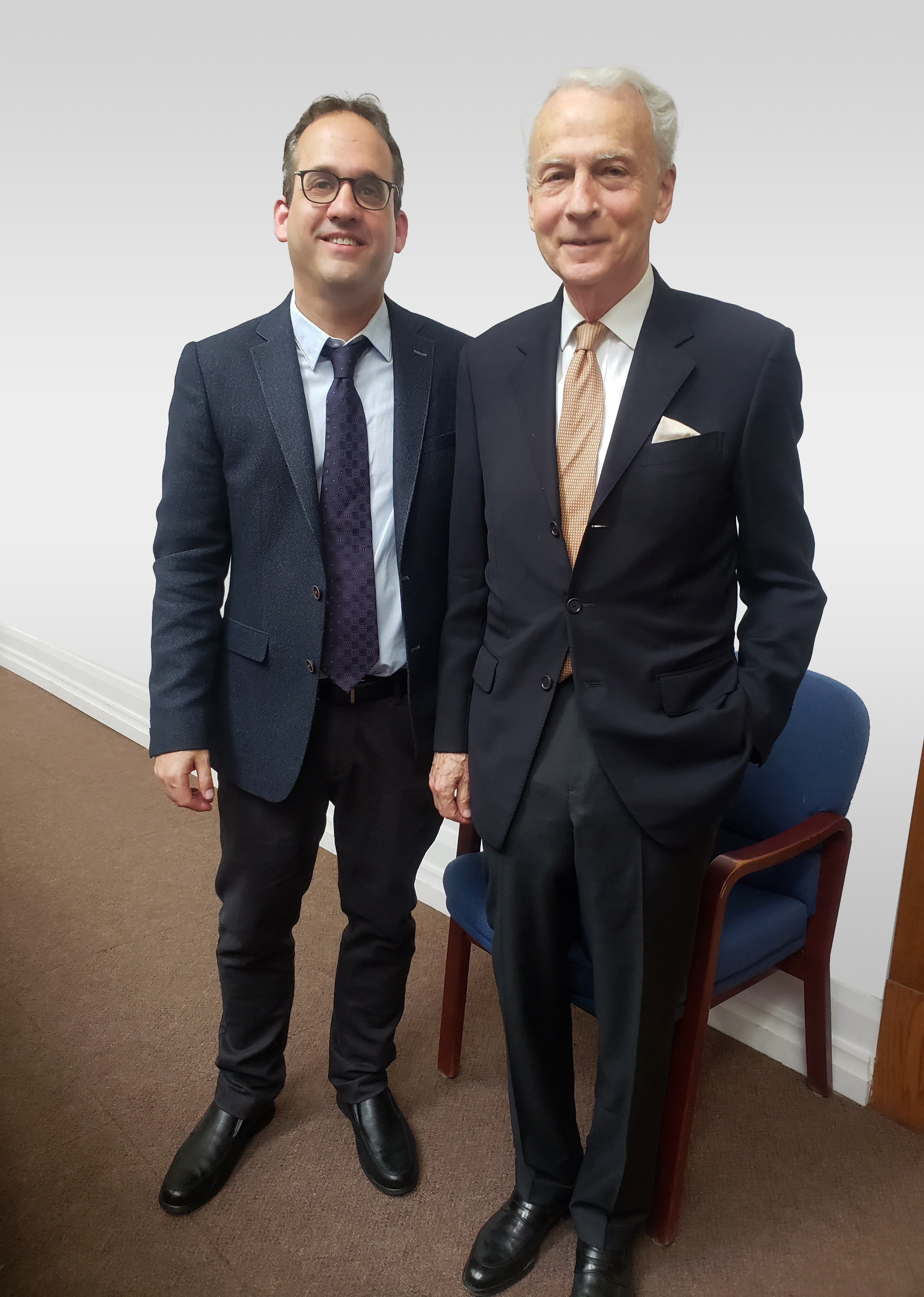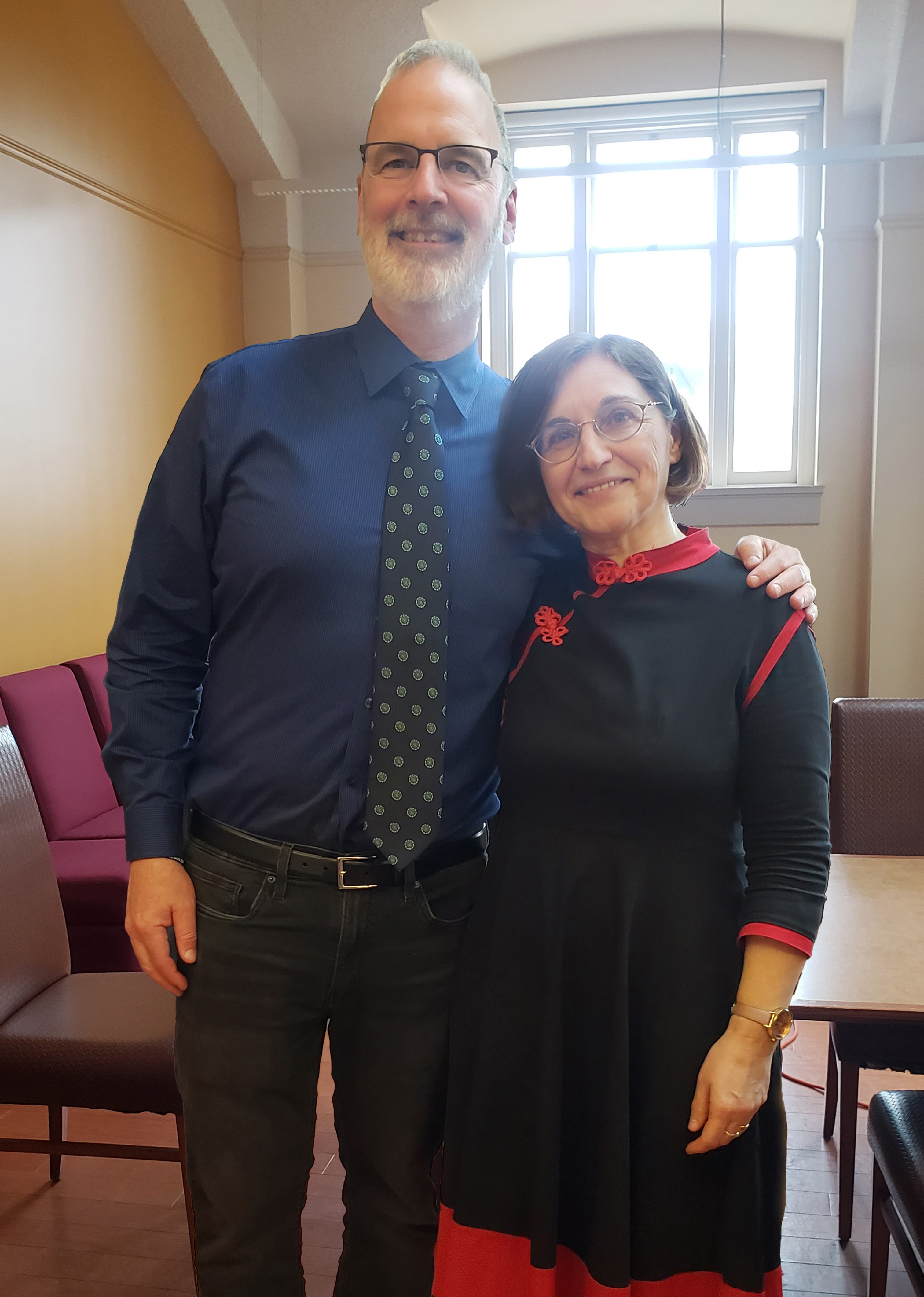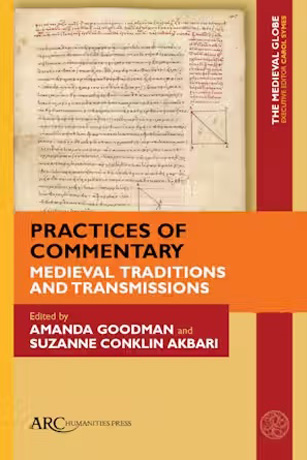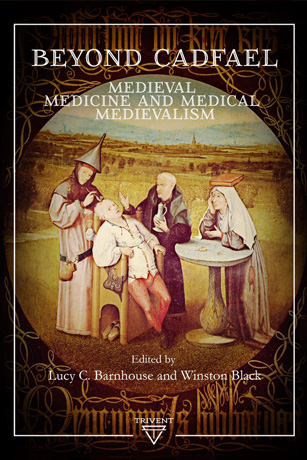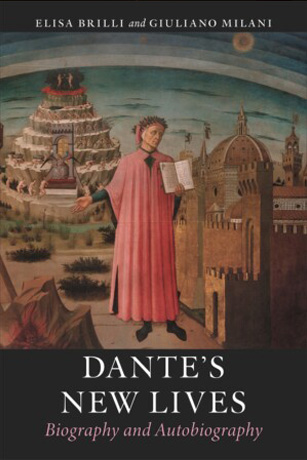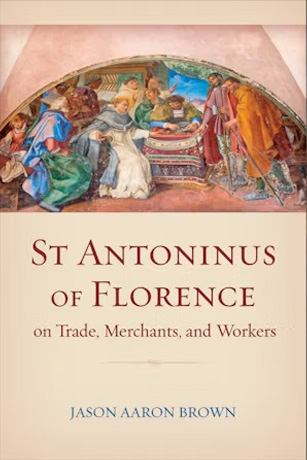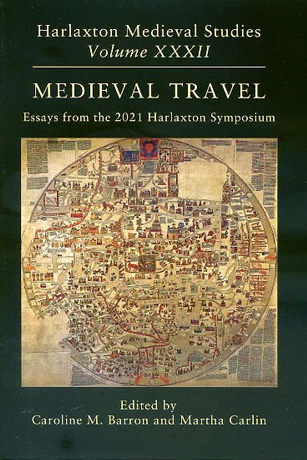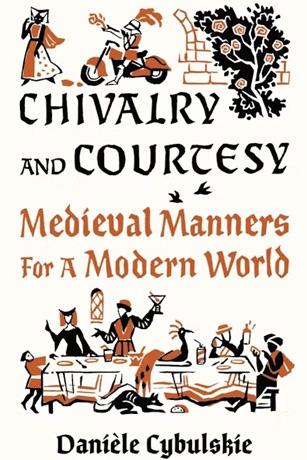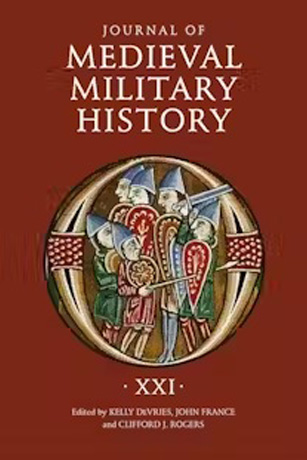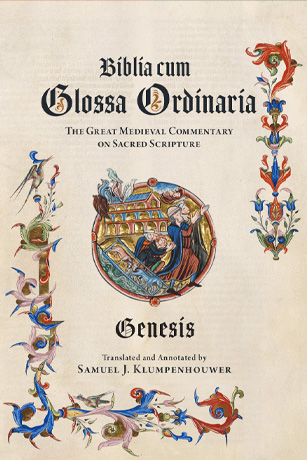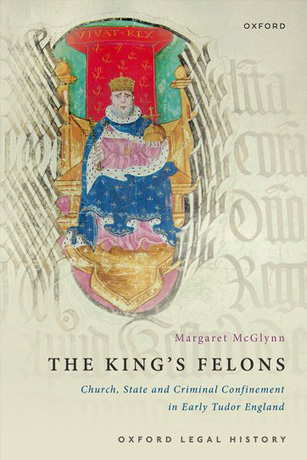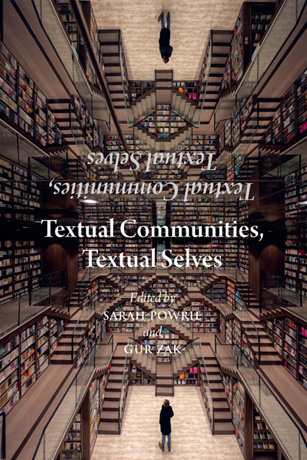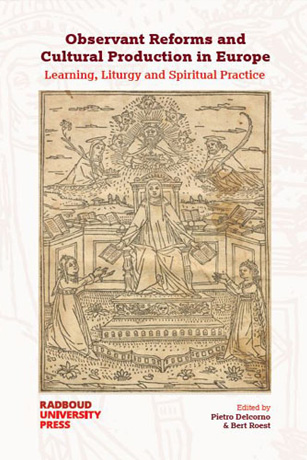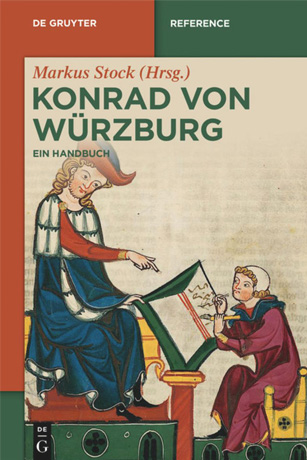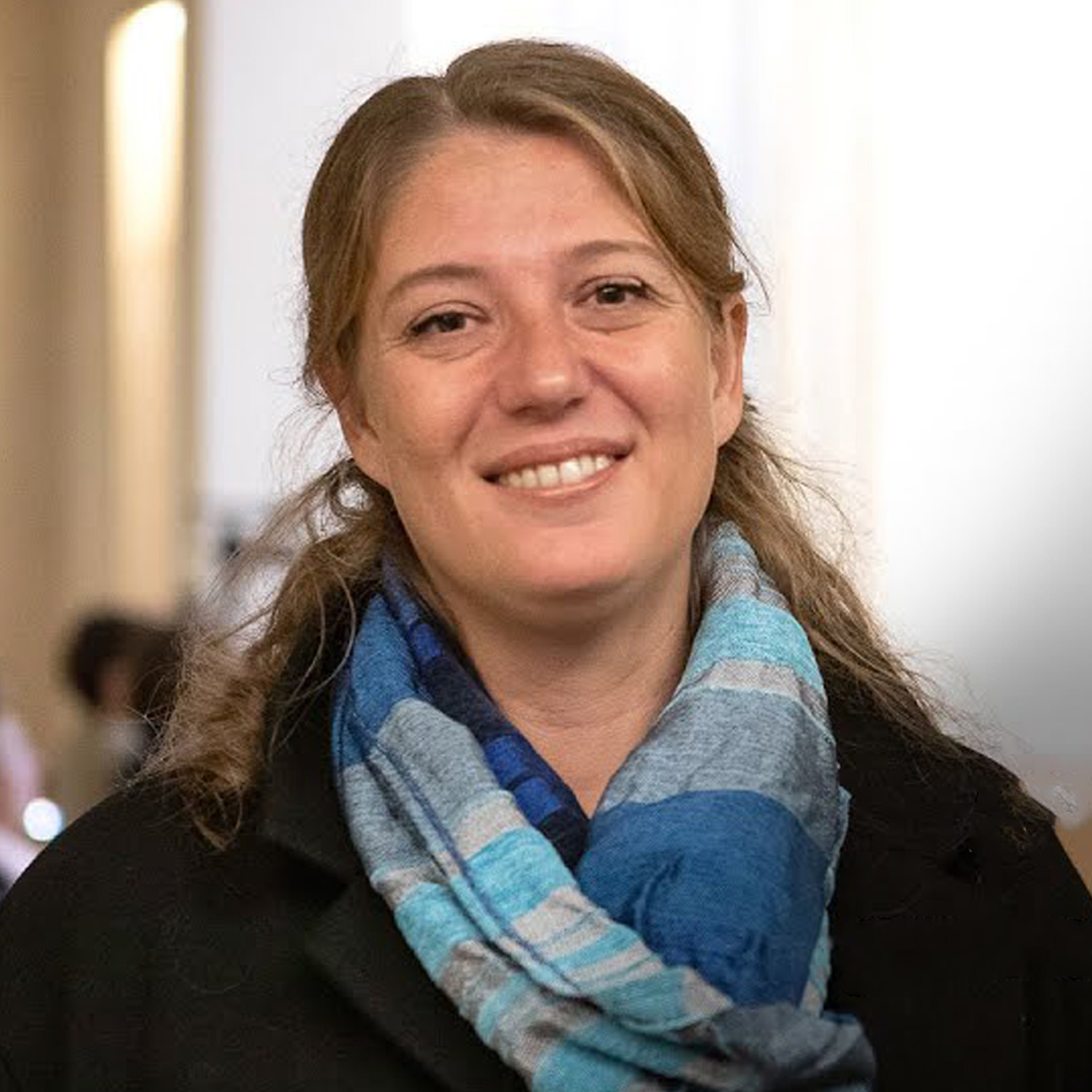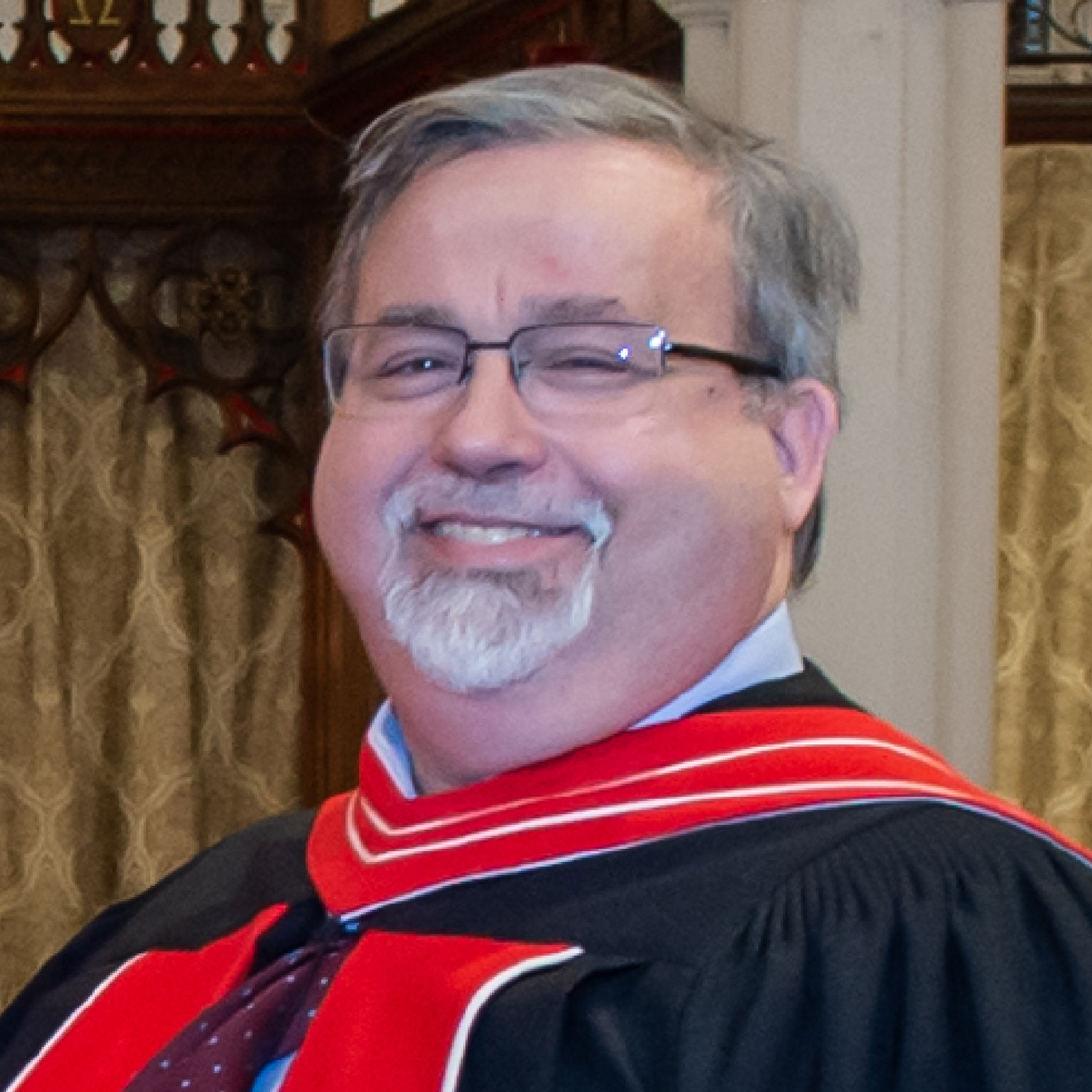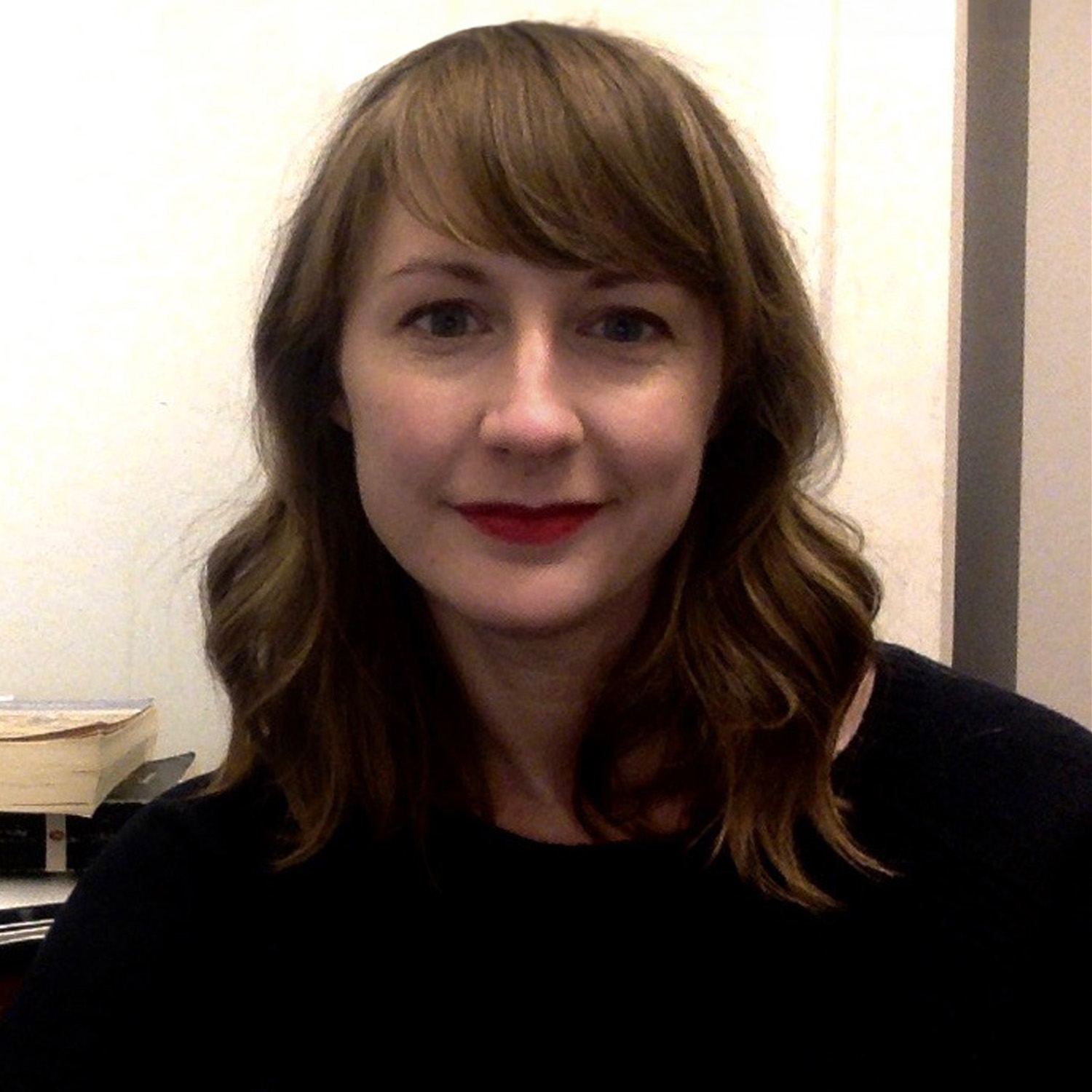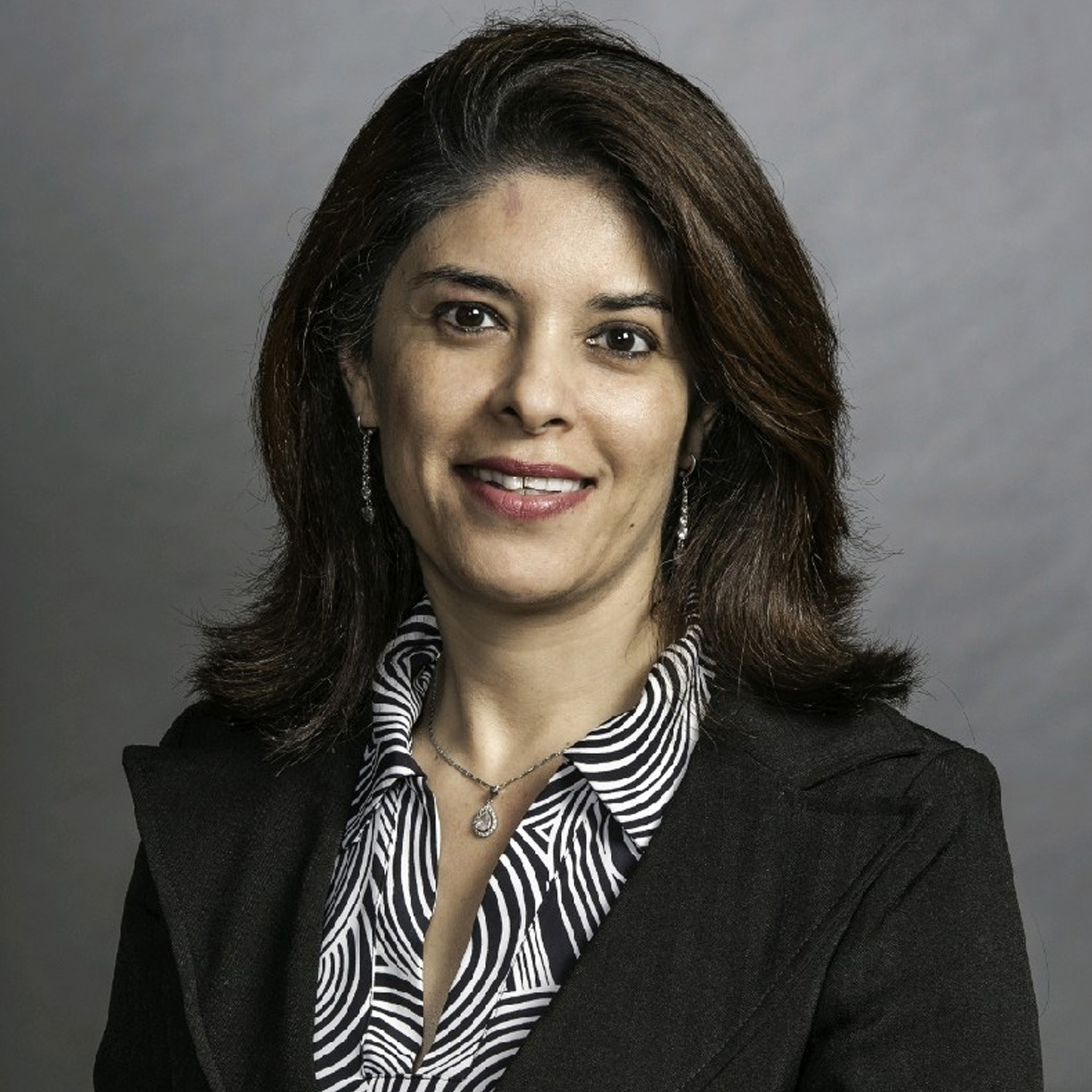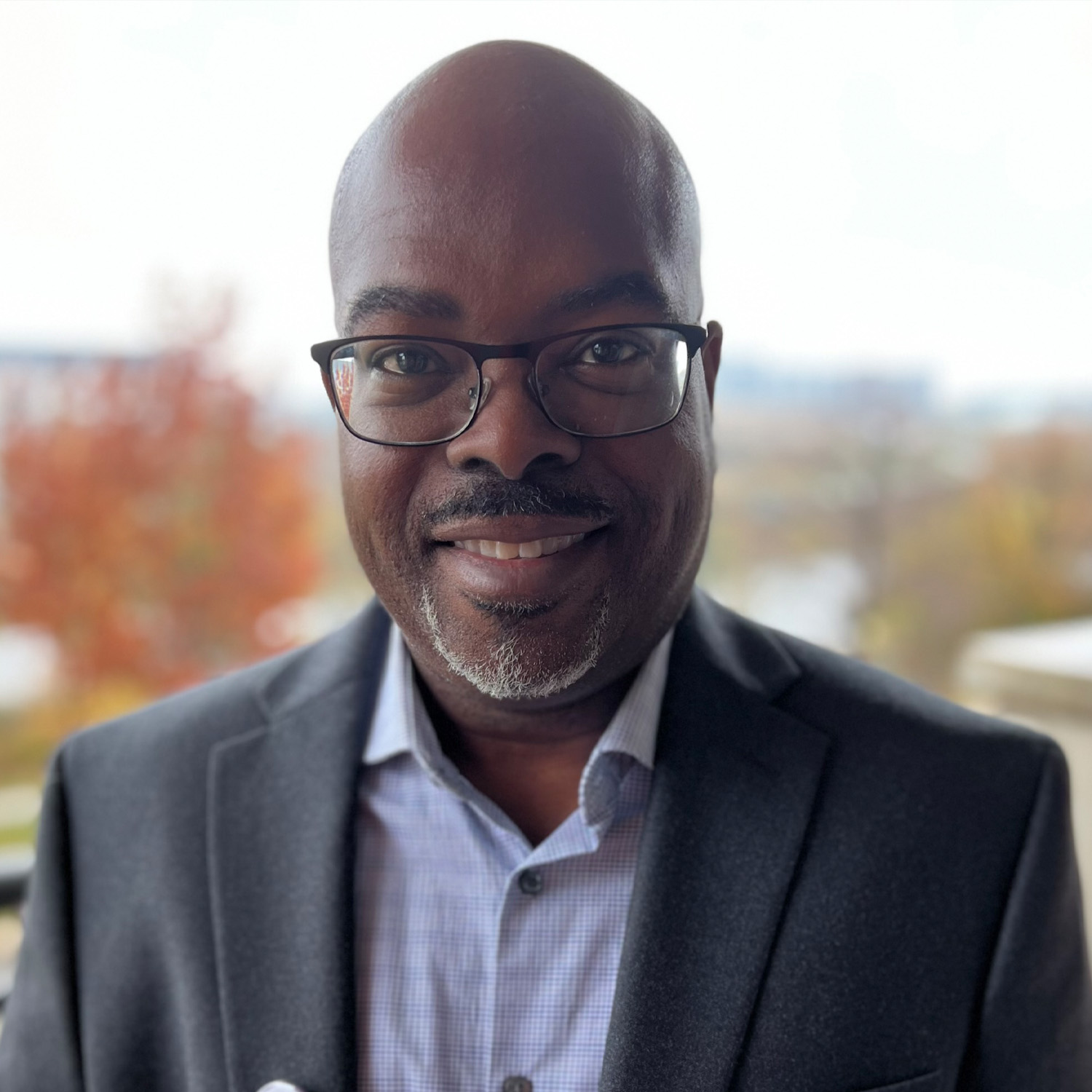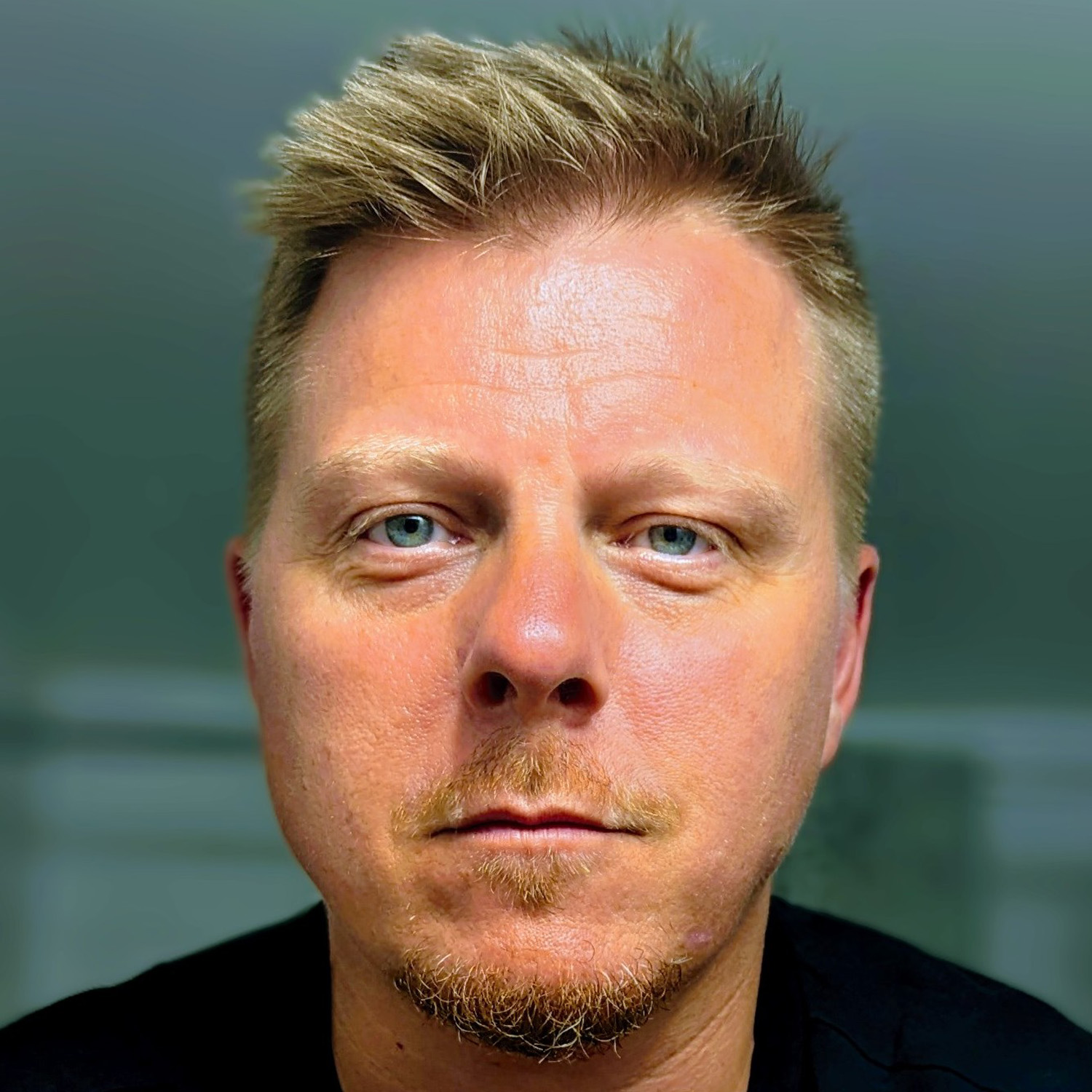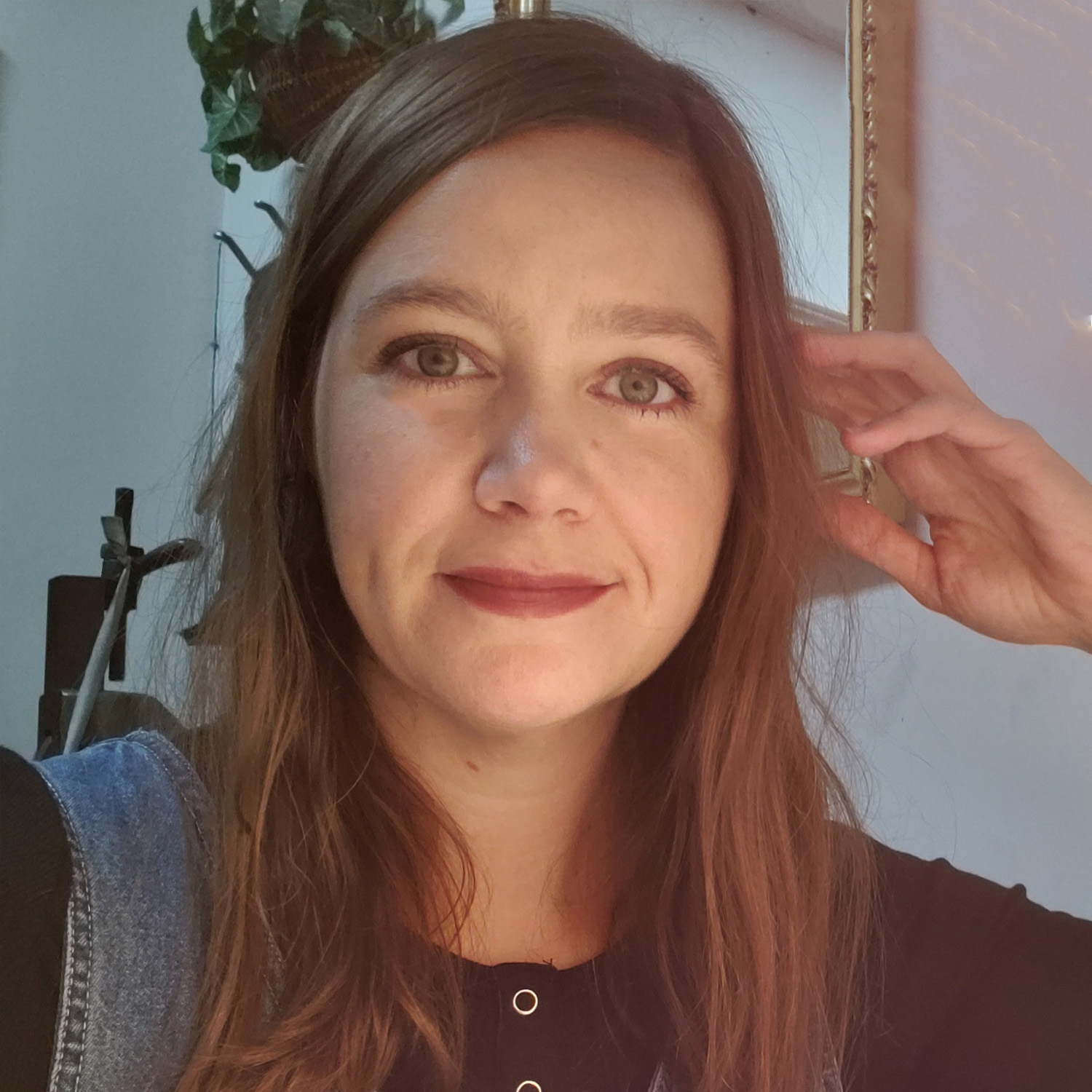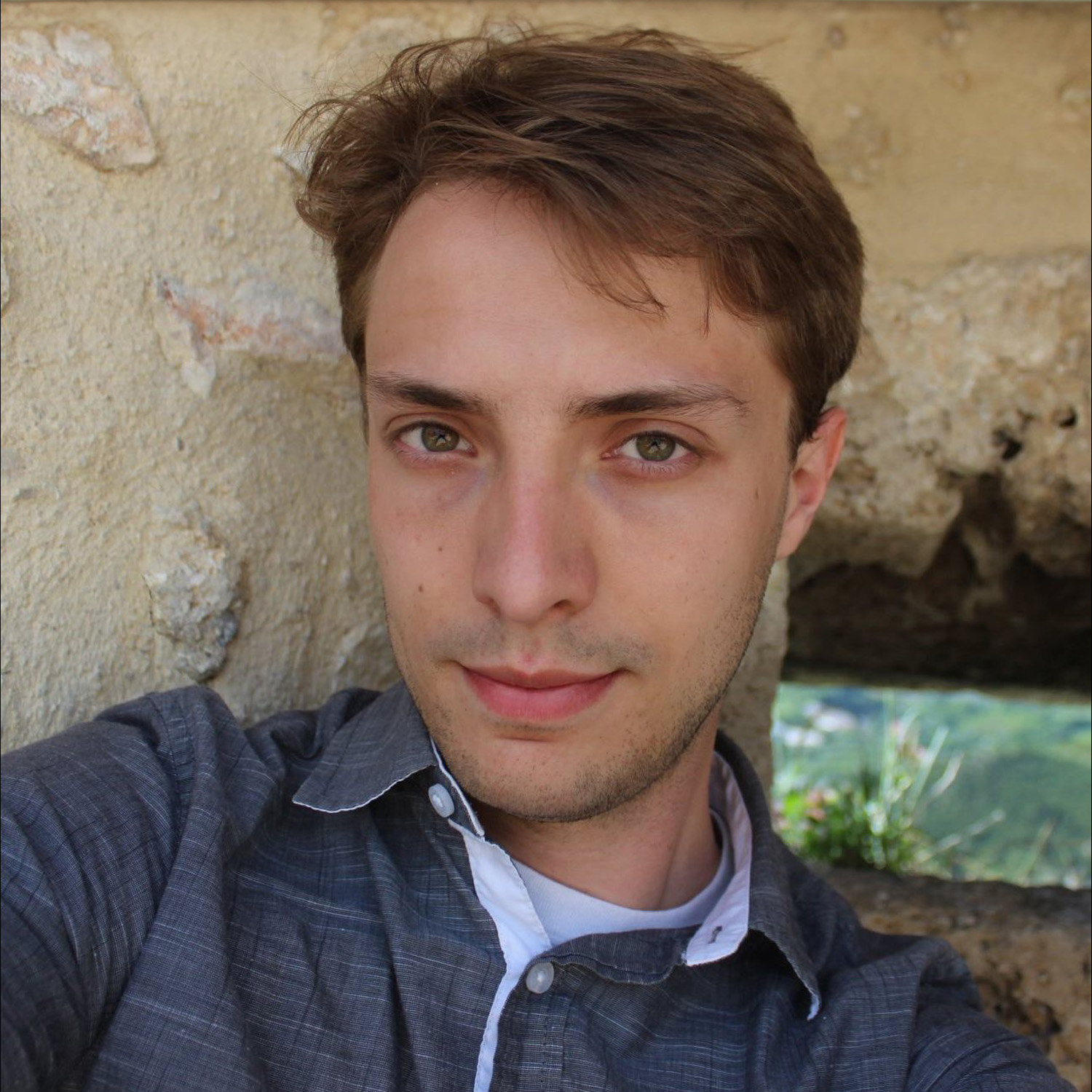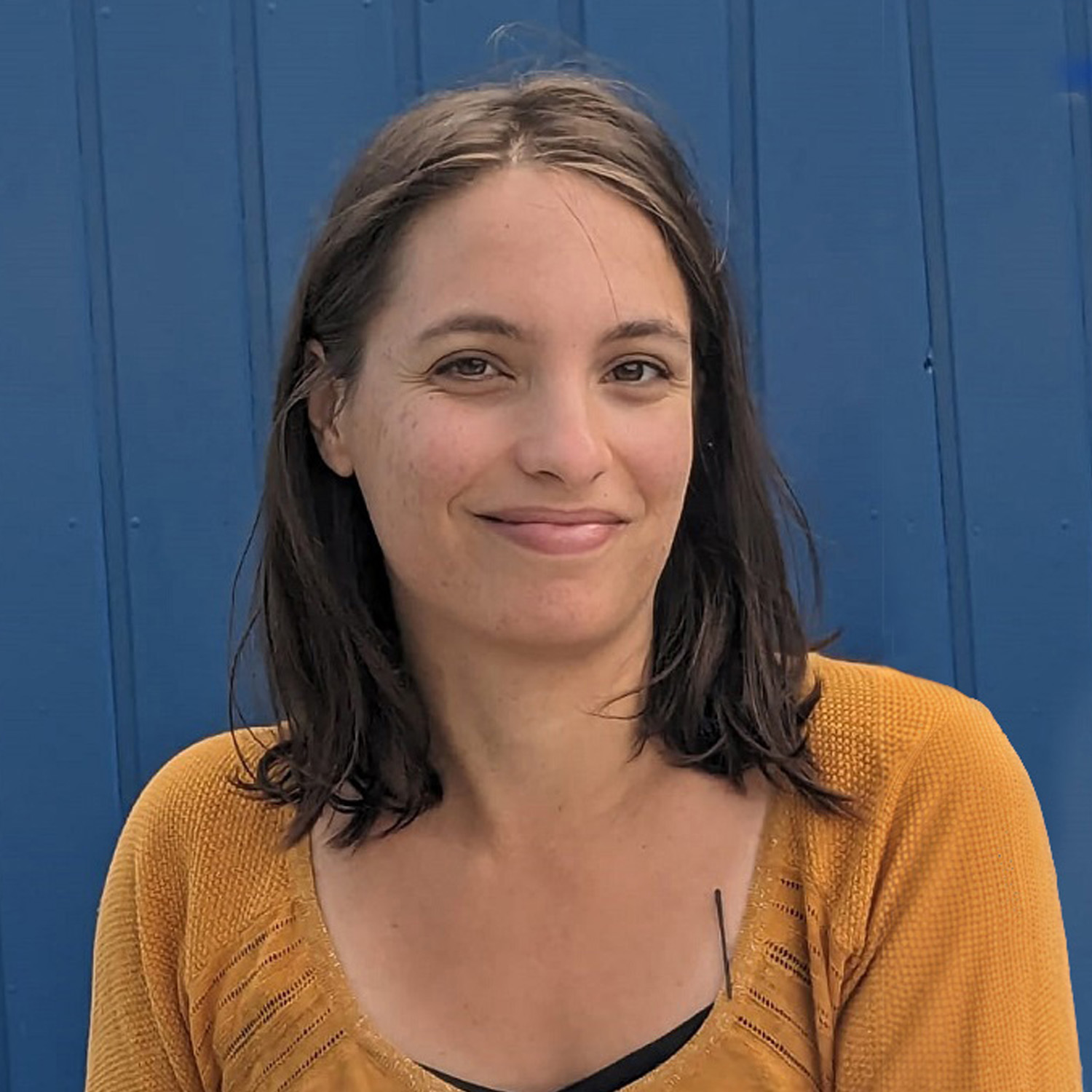Message from the Director
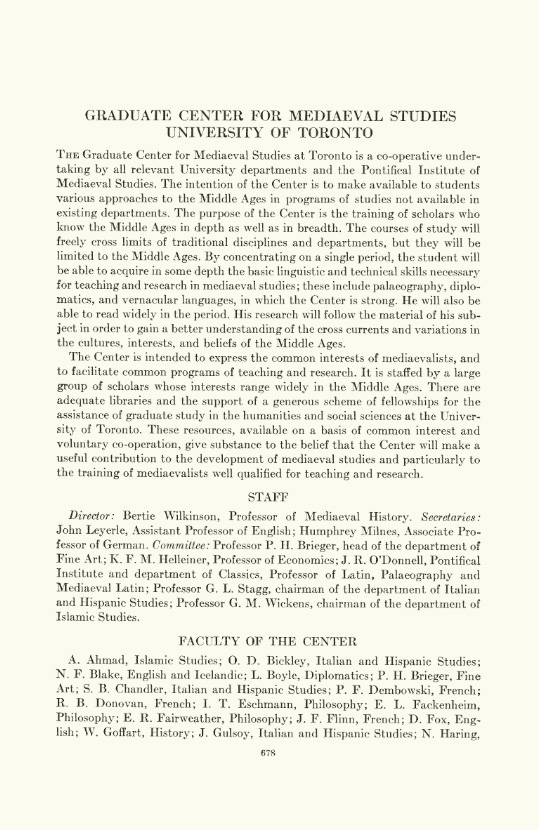
(Oct., 1963), p. 678
Every year around this season, we find ourselves wondering and trying to explain, “What is the Centre for Medieval Studies?” Yes, it is the largest community of medievalists in North America and one of the largest in the world. Along with the undergraduate programme in Mediaeval Studies at St. Michael’s College, and the post-graduate research opportunities at the Pontifical Institute of Mediaeval Studies, CMS graduate programs comprise the broader curriculum in Medieval Studies at the University of Toronto, one of the few universities in the world that features a complete course offering specifically dedicated to medieval studies across disciplines and languages from the BA to postdoctoral studies. Its mission is oriented towards two overarching goals: to guide students in acquiring proficiency in Medieval Latin and related disciplines, and to cultivate an interdisciplinary approach to the study of the Middle Ages. All of this is true; but then what does this mean?
Over the years, during the individual annual meetings that I would hold with new and returning graduate students, and again today as the Director, I am asked and ask myself this same inescapable question. Sometimes I have invoked history, and the 1963 foundational manifesto published in Speculum: “The intention of the Center is to make available to students various approaches to the Middle Ages in programs of studies not available in existing departments. The purpose of the Center is the training of scholars who know the Middle Ages in depth as well as in breadth.”
Other times, I have explained all of this in practice, by illustrating our programs and trying to convey the meaning of our indeed challenging but also refreshing requirement. At times, I have sought metaphors, imagines agentes to help fix the idea as the Medieval mnemonic technique teaches us. Would the “hortus simplicium,” a carefully designed ensemble revolving around a source of water, or the Latin programme, where each herb / discipline is necessary and harmoniously combined with the others, fit? Even more often, I have tried to understand what the Centre means for students, faculty, scholars, associates, affiliates, alumni and other medievalists. I always found old certainties but also new ideas, new possible combinations.
So, a warm welcome to this place of encounter, to this community of learning and research, as Alexandra Bolintineanu and some of her collaborating students explain to us in the first of our News and Stories. Welcome to the new master’s and doctoral students, and the colleagues who will soon guide them to refine their talents and discover their true interests. And of course, welcome to our new postdoctoral fellows, like Noam Sienna, and visiting scholars, like Pasquale Porro, this year’s Bennett Visiting, to whom the Spotlight is dedicated. Soon our colleagues from Cologne will be welcome for the ninth edition of the Toronto-Cologne Graduate Colloquium, together with the many other speakers featuring in this 2023-24 series of the Convivium. Welcome back also to the Alumni who have so generously agreed to contribute in our classrooms and, thanks to the coordination of Professor Sebastian Sobecki, will help us better guide doctoral students navigate our profession in MST 1003.
And, of course, welcome to Prof. Kara Gaston, who will work as the PhD Coordinator this year, and to Prof. Jim Ginther, who will once again assume the role of Associate Chair, as well as to the entire administrative team - Mrs. Fareena Mughal, Mr. Terry Louisy, Mr. Simon Swain, and Mrs. Cora Endean - and the new Student Executive Committee.
In short, welcome back everyone to the good work. Let us see together what the Centre will become and mean to us this year.
- E. Brilli, PhD
News & Stories
From the Learning Community to the Scholarly Community
Professor Alexandra Bolintineanu (CMS / Woodworth College) was recognized this year for her exceptional commitment to student learning and teaching innovation with the Medieval Academy of America’s CARA Teaching Prize, and U of T’s Early Career Teaching Award. Professor Bolintineanu, along with some of her past Teaching Assistants, describe their teaching experiences, methods and philosophies, and connections between teaching and research.
Your success starts in the classroom and is grounded in your Medieval Studies and Digital Humanities courses. What methods do you use to engage and inspire your students?
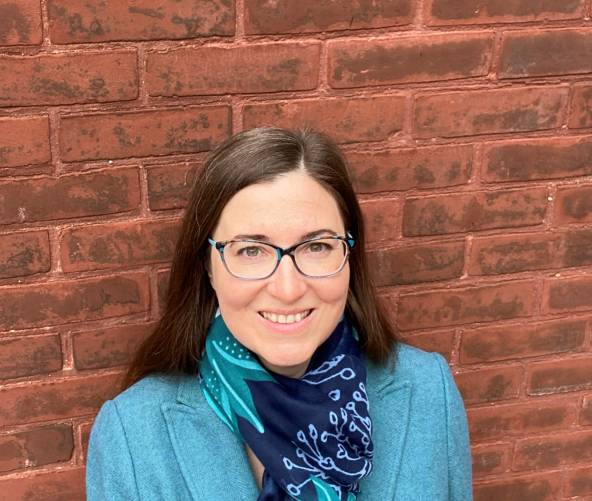
In class, I seek to create an open, friendly environment so that students feel comfortable asking questions and developing ideas, often using group-based role-playing and problem-solving scenarios. I divide the class into groups and disconnect a complex question or reading into multiple parts, like a jigsaw puzzle. Students work individually on their pieces and then test ideas in conversation with their small groups, ending with each group contributing insights on their piece of the puzzle to the whole class. Because students get to first discuss their ideas with a small group of peers, the atmosphere becomes more collaborative and less intimidating. With each group being responsible for their own puzzle piece, they are motivated to produce a rigorous, meaningful response or solution.
My favourite strategy is even simpler: asking low-risk, open-ended questions, giving students a brief time to reflect and make notes, and then inviting responses, and writing students’ answers on the board, to validate their contributions. Experiential learning is a significant part of my teaching praxis.
Can you expand on the importance and effectiveness of experiential learning?
In medieval studies and digital humanities alike, I want students to experience wonder and delight by engaging closely with the material artifacts we study, whether these artifacts are medieval books, material objects, or digital projects.
Hands-on learning experiences inspire wonder. They invite students to engage closely not only with the artifacts, but with the process of knowledge production, through the study of medieval manuscripts and printing presses, illegal typewriters, and digital content management systems. The lens of banned and endangered knowledge invites students to think about the lives of books in their historical context at the intersection of culture and technology.
During guided visits to the Thomas Fisher Rare Books Library and its magnificent medieval manuscript collection, students turn the parchment pages, learning the tactile difference between the “hair” side and the “flesh” side of a medieval manuscript page. They marvel at spectacular illuminated margins, their exquisitely painted miniatures with lapis lazuli blues and highlights of gold as vivid today as the day they were scribed. They experience prayer books smaller than their palm, meant to be portable aids to devotion, and antiphonaries larger than a table, meant for public singing, shared among members of a monastic choir.
What do you think makes a successful teacher?
With or without digital technologies, good humanities teaching communicates curious, rigorous, immersive reading and writing with a clear-eyed, imaginative empathy that engages with big ideas and large-scale insights, without losing sight of the minute and messy particularities of texts, historical objects, or digital artifacts. This is the kind of reading and thinking that I want my teaching to transmit. I want my students to have the life-enriching store of knowledge that will help them read and write, for survival and sustenance, into other perspectives, other stories, other selves, and other worlds.
To be an effective teacher, I also firmly believe that I have to keep learning, not only to master new bodies of knowledge and develop skills, but to be constantly reminded of how it feels to be a student.
CMS PhD Candidate C. E. M. Henderson has been a Teaching Assistant for medieval studies undergraduate courses since 2016. Henderson tells us about their experiences as both student and teacher.
What brought you to CMS and how has your journey shaped your research?
I was born in Toronto, but actually tried to avoid CMS since it’s where my fellow undergraduates wanted to attend, and where my professors told me I should study. So I obviously didn’t want to do that. Plus, everyone said you needed to know a lot of Latin; I liked Latin but didn’t love Latin, and wanted to keep studying archaeology. So, after teaching English in Nagoya (a safe 10,000 km distance from Toronto), I moved to York, England to work on a late-medieval medical manuscript for my dissertation.
I’d always been interested in herbal medicine and found a book I thought was so cool; it was dirty and ugly and filled with marginal notes. The subject encompassed most of the things I liked about archeology, without any of the standing in the rain with bulky surveying equipment. I like looking at things and figuring out how they fit together, and I especially love things that are grimy and used and weird. Medieval English codicology is basically all of that most of the time, and it’s great!
I ended up returning to Toronto to enter CMS’ PhD program, as I wanted to work with supervisor, Alexandra Gillespie. Also, my MA thesis external examiner pointed out that my Latin was bad (serves me right). I’m now working on using computer vision and machine learning to identify the work of particular scribes. This is exciting because no one has any real idea how it works.
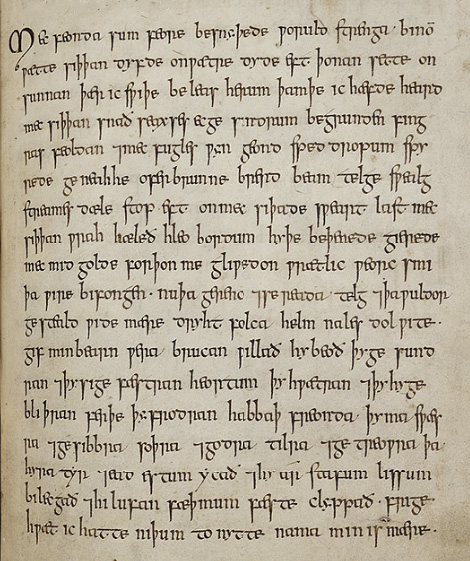
Library and Archives & University of Exeter Digital Humanities Lab
What are your thoughts on progressing from student to teacher?
I suppose my ideology is that imagining a firm boundary between student and teacher, seeing it as a progression from one to the other, is antithetical to actually teaching anyone anything! My teaching evaluations express things such as, “I really appreciate being made aware I have rights despite being a student, and having those rights respected” (direct quote!) and this horrifies me. Students cannot evolve and learn without respect, and teachers should and do continue to learn. Having humility and not attempting to distance yourself from your students helps in remembering you’re not in some altogether different category of person from them. It’s important to remember that even if you’re teaching something that seems simple, your students are actually engaged in something difficult: a bachelor’s degree. A teacher’s job is to make that process as useful and meaningful as possible.
During 2020, the Digital Humanities class for which you were a TA had to pivot to accommodate virtual learning. What can you tell us about the student assignment and about writing a collaborative essay on the experience?
The assignments were an amazing end to such an awful semester. In grading the submissions, I was really impressed by the exceptional student engagement, despite the end-of-term burnout. They all had such different takes on the same prompt and were all truly interesting to read and play through. I really appreciated that writing the paper gave us the opportunity to scrutinize the work in a way that you don’t experience with regular marking and feedback.
Collaborating is a lot more fun than working by yourself. When you’re writing solo, you’re never excited to open a draft; it’s going to be the same way you left it and probably less finished than you would like. Additionally, getting messages about your work such as, “This is SO GOOD!!” is a great ego boost, especially when you’re working with Alexandra Bolintineanu, who is about the most enthusiastically generous person on the planet. Positive feels all around; I highly recommend it.
As a TA for Alexandra Bolintineanu’s Introduction to Digital Humanities course, along with students, Ana Algarvio Alves Wong, Dionysus Cho, Robyn Jane Carino, and Kathy Du, Henderson collaborated with Bolintineanu on the essay, “A Certain Enemy Robbed Me of My Life”: Medieval Riddles, Digital Transformations, and Pandemic Pedagogy, an examination of games created by students based on Exeter’s Riddle 26.
Mary Maschio and Morgan Moore, CMS PhD Candidates and previous TAs for two of Alexandra Bolintineau’s classes - MST 201 and MST 202 - will evolve to course instructors for the same courses this year. They talk about their transition from assistant to instructor, developing their own philosophies, and how this shapes their research.
Mary, what brought you to CMS and how has it contributed to your academic goals?
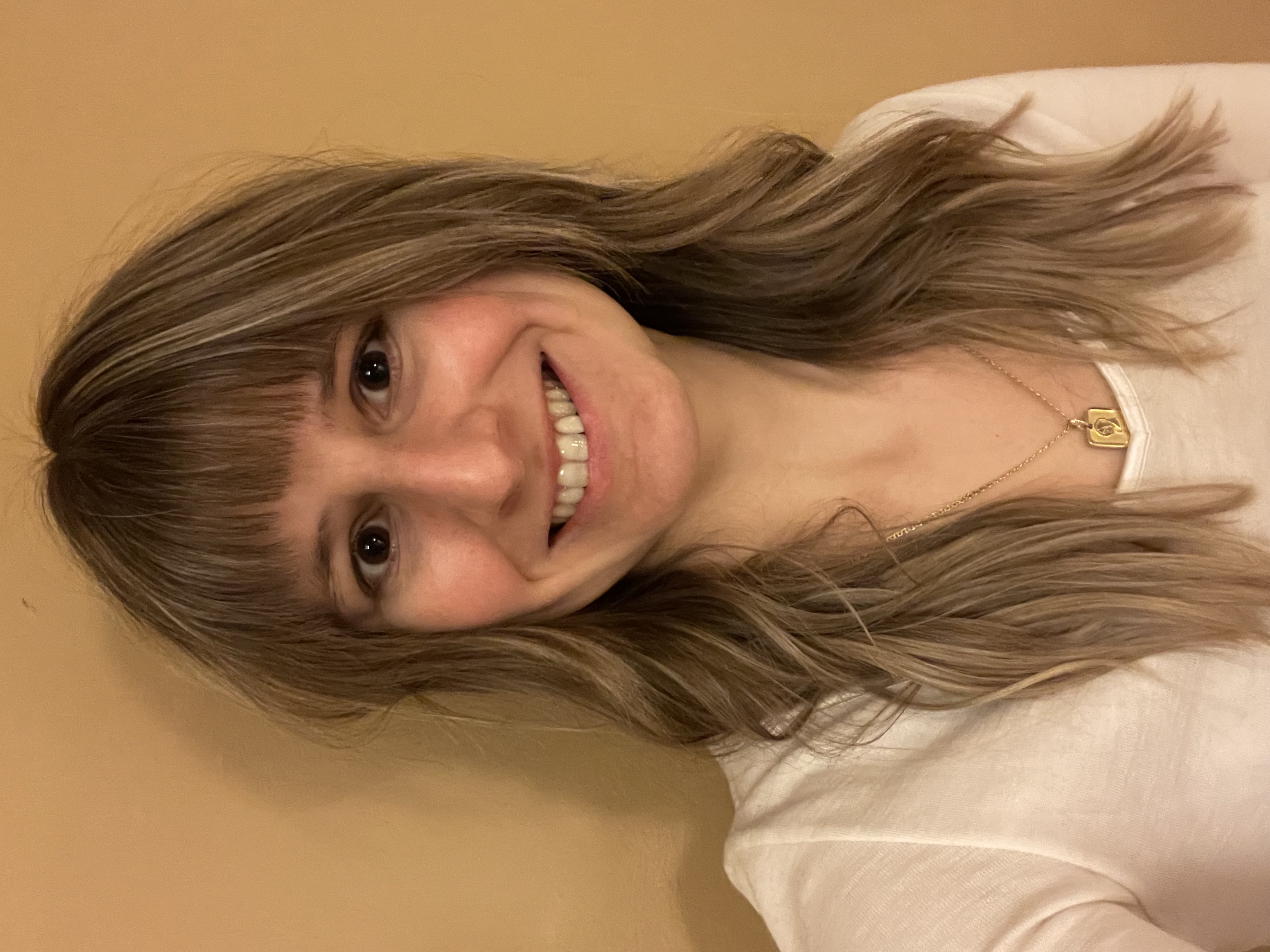
I began my PhD at CMS in 2018, drawn by the Centre’s reputation for academic excellence, the prospect of a large community of medievalists (not always easy to find!), and the greater opportunities for teaching than are usually available in the UK, where I completed my previous degrees.
After a Master's in which I was split between five different departments and never seemed to be on the right mailing list, finding a departmental home and that close-knit, welcoming community at CMS has been wonderful. The program has not only enabled me to explore my initial academic goals and interests but also to discover new ones. I had never planned to become proficient in Medieval Latin, but the rigours of the CMS exams have given me the skills and confidence to expand my research into unexpected avenues.
Medieval studies is a capacious field covering more than a thousand years, disciplines from literature to archaeology to history, and an increasingly broad geographical range. I love the flexibility and variety that this offers, as well as the range of different skills the discipline requires, from the precision of learning languages and deciphering manuscripts to the creativity needed to work with complex and often imperfectly preserved sources.
How did your research interests develop and what makes you continue to want to explore?
My interest in literature is in many ways a natural outgrowth of my voracious and long-standing love of reading. I first became fascinated with medieval literature during a second-year undergraduate course that included the Chanson de Roland. Reading this text, everything seemed strange to me. Unmoored from the usual frames of reference, expectations, and literary devices that I was accustomed to in modern literature, I drifted, unable to understand why things happened the way they did; why can’t Charlemagne just not give Roland command of the rearguard? I was desperate to find out. The reasoning may have been strange, but the intense emotion of the poem came through clearly. This same desire to understand what drove people to create the rich variety of literature of the Middle Ages still animates my research.
You will teach MST 201, Getting Medieval: Myths and Monsters, a course for which you were previously a TA. How has this influenced your methods and how do you see them evolving?
My first experience as a TA was with MST 201, where I was eager to discuss Beowulf and introduce the students to the weird and wonderful world of medieval literature, though I was certainly nervous and wanted to teach them everything I knew. Since then, I have managed to relax and trust my students’ capacity for independent study. I have come to view my role as a support to them along their own intellectual journeys rather than unidirectionally imparting knowledge.
Being a first-time instructor is somewhat daunting, but thanks to the experience I have gained as a TA, I feel ready to take on the challenge. I have already seen how clearly enthusiasm transmits to students. A large percentage of a past tutorial group chose to focus their final assignment on Marie de France’s Bisclavret, and when asked why they had chosen this text, one response was that my obvious passion for the poem had sparked their interest.
What are you looking forward to in the new year, both as a course instructor and returning student?
In MST 201, each topic introduces students to a new time, place, and culture in the Middle Ages through a crucial literary text that contains a fascinating monster. I am especially keen to bring in some lesser-known Greek texts that fit into the course’s aims and contain some wonderful monsters. We will discuss key themes and their relationship to the times and places in which they were written. We will also put each narrative in conversation with contemporary objects, in order to explore how the visual and literary arts intersect.
The special thing about CMS is the community; I strongly advise new students to get involved and attend the events. I’m looking forward to getting to know the new people, to cake and company in the Great Hall, and to hopefully finishing my dissertation!
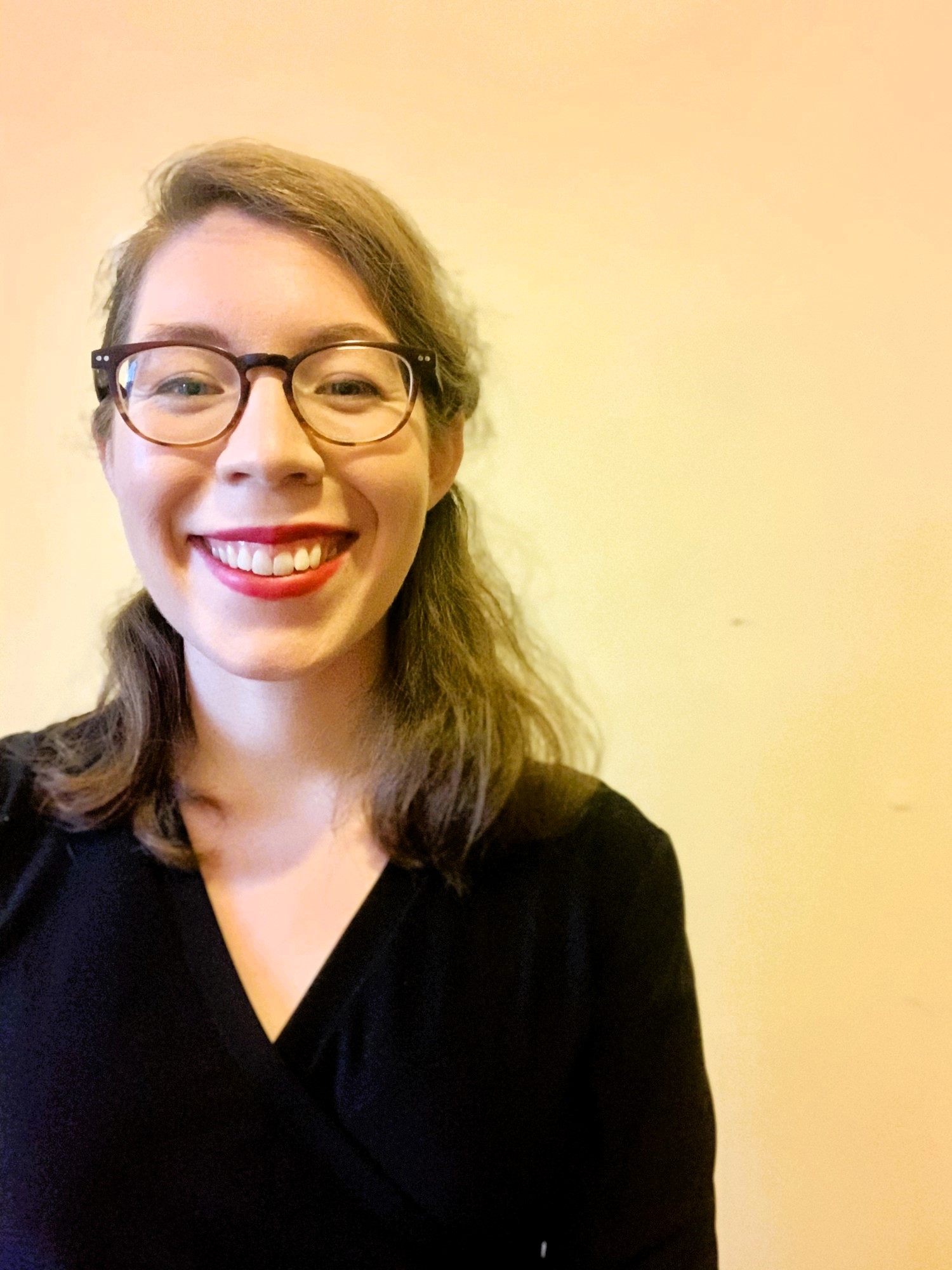
Morgan, can you please tell us how you arrived at CMS, and how your academic journey has shaped your research and teaching?
As an undergraduate student at Wellesley College, I declared a Medieval Renaissance studies major because I couldn’t bring myself to decide between English or history; I wanted an option that would let me take classes from both departments, that would let me pursue my interests in both areas. Being in the small, enthusiastic, interdisciplinary Medieval Renaissance Studies major at Wellesley made a big impression on me. It gave me a glimpse of what an interdisciplinary department could be, demonstrating how the brilliant, compassionate, and engaged faculty - all with such varied research interests - could be brought together for a rich array of courses. My teaching is rooted strongly in both what I saw from my instructors, and how eager and insecure I remember being as a student in their classes; they took me seriously and at the same time extended patience.
As I finished my thesis and entered an MA program in Medieval Welsh Literature at Aberystwyth University, I found I was hearing more and more about publications, faculty, and students from CMS, and was encouraged by my former advisor to apply. I made a list of everything I was looking for in a medieval studies graduate program; CMS met every single criteria.
While at CMS, I realised that the texts with which I previously struggled and disliked the most intensely were Chaucer or the Middle English play Everyman which I now rely on and can’t wait to teach! I had to fall in love with the sound of the language first, which I couldn’t do until taking two undergrad courses with Matt Sergi, who properly taught me how to read and pronounce Middle English. CMS has provided exactly the kind of community I was hoping to find; being around friends and colleagues with so many different interesting research areas never gets old.
How did you discover an academic interest in Book Studies, and how has it evolved?
As a small child, I loved experimenting with my own ink and quill pens on scrolls made of cut brown paper bags, but I was much more interested in shiny new books than in old ones! My introduction to working with manuscripts as a researcher was at Wellesley’s Special Collections, retrieving materials for readers and getting to know the collections from the inside.
During my visit to U of T as a prospective student, I became enamoured with the Book History and Print Culture collaborative program. Then, after moving to Toronto, I met Alexandra Gillespie and her Old Books New Science team and discovered that they needed volunteers. These opportunities connected me to U of T’s manuscript and book studies communities, and have introduced me to some brilliant, compassionate people, who have not only aided my research but who have helped me find a home in Toronto.
What have you learned as a Teaching Assistant that has helped you develop your own teaching philosophy?
My first encounter as a TA was shaped by working alongside more experienced TAs, and under the guidance of Professor Alexandra Bolintineanu, who together modelled what I still see as an ideal balance of expectations and attitude. As I’ve gotten more experienced, I rely less on what I’ve learned from others and can now confidently adjust in the moment, having a clearer idea of my ideal outcome.
I’ve realised that I care much more about the process of student learning than the final product of their work. I want them to produce sound analysis, confident writing, and thorough research, but not at the expense of their mental health or through desperate means. With today’s possibilities of purchasing or fabricating assignments, knowing their grade is based on consistent effort, clear engagement, and applying feedback, rather than a final exam or project, students have a better chance of developing patience, tenacity, and understanding.
What are you looking forward to about teaching MST 202, Getting Medieval: Place and Space?
I’ve always loved the way that this course blends historical and literary themes with larger, more abstract concepts. For example, we introduce the names and dates of different medieval mappa mundi, but we also discuss what a map can represent, its philosophical or religious purposes, and how travel can be undertaken physically and spiritually. This will be my first time running a sizable lecture class, so I’m looking forward to adding new techniques to my toolkit that are better suited to large groups.
Teaching reinvigorates me. I love the energy that undergrads have brought to my tutorials and classes. Things that I take for granted are still new to them, and they ask the most interesting questions. I spend a lot of time writing and thinking about medieval dialogues, so to have a dialogue with students - a give and take, a chance to share and learn together - reminds me what it’s all for.
Retracing Jewish Books Across the Mediterranean
This December, we welcome 2023 Faculty of Arts & Science Postdoctoral Fellowship Award recipient Dr. Noam Sienna, whose research on Jewish books in the medieval and early modern worlds will collide with the Hidden Stories Project. Dr. Sienna will be working with Professors Adam Cohen (CMS / Art History) and Walid Saleh (CMS / Religion) at CMS and the Centre for Jewish Studies.
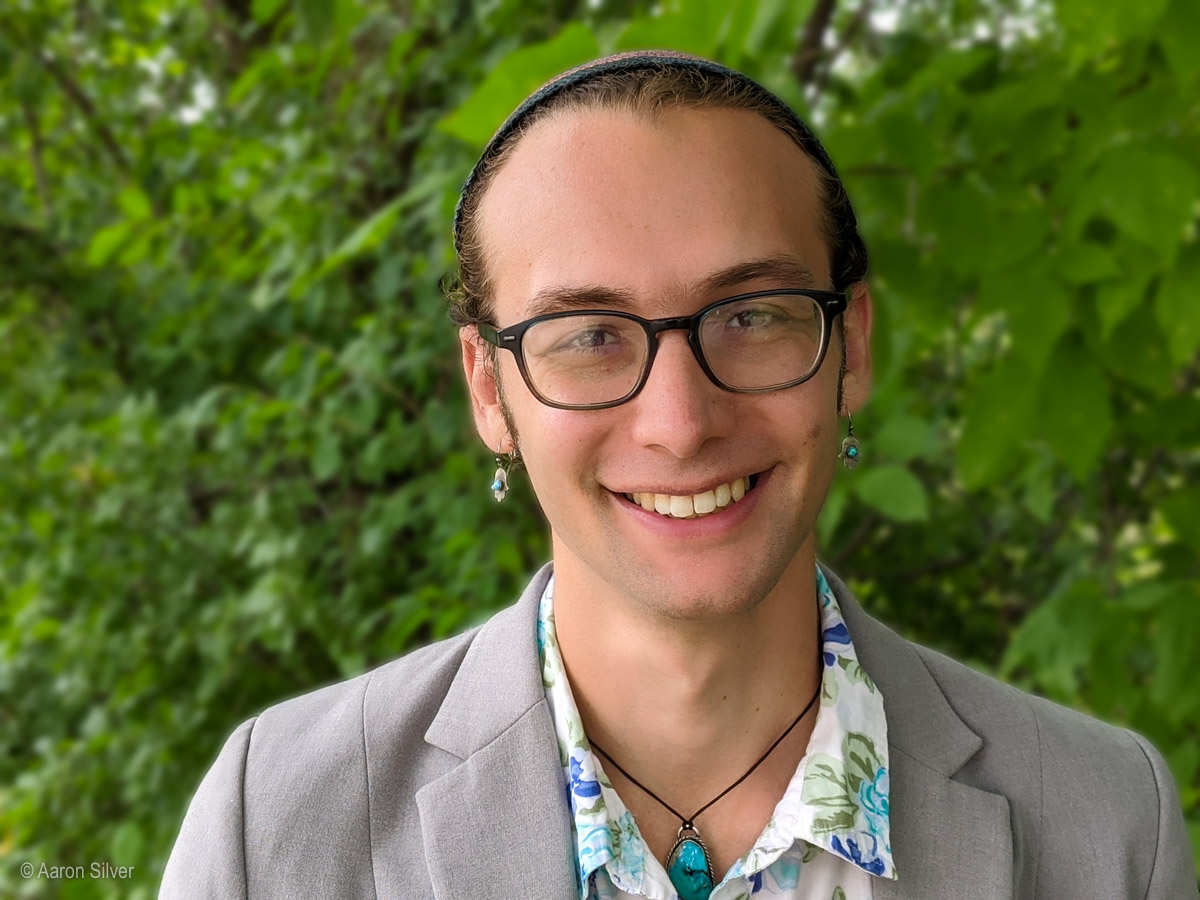
How did your interest in Jewish Culture and history begin and develop into a focus on arts and material culture in the medieval and early modern periods?
Having always been fascinated by the historical development of Jewish cultures and their larger contexts, I studied Anthropology, Classics, and Religion at Brandeis University, where I became particularly interested in Jewish life in the Islamic world. During a year abroad in Jerusalem, I carried out fieldwork with Jewish immigrants and their descendants from North Africa and the Middle East, and studied Judeo-Arabic – by accident; I had planned to take a colloquial Palestinian Arabic course, but after a last-minute cancellation decided to try out Introduction to Judeo-Arabic, not realizing it was a course for students who already knew other dialects! As the only student who had never studied Arabic, the first day was intimidating, but the professor was so encouraging and generous that I stayed not only for that first semester, but the semester following, with the same professor – a mentor and a friend to this day.
During my MA in Religion at U of T, I focused on the Jewish communities of colonial North Africa and took courses in art history and material culture. I began thinking about the connections between the history of religious communities and the physical objects that they created, used, and left behind. From there I pursued my PhD in History at the University of Minnesota and wanted to choose a dissertation topic that could combine traditional historical research with a focus on material culture. It occurred to me then that books themselves were physical objects!
I discovered the field of book history and the work of scholars who use books as windows into the social, cultural, economic, aesthetic, religious, and political lives of the people who made and handled them. I wrote my dissertation (soon to be published as a monograph itself) on Jewish book culture in early modern North Africa and got involved in a number of different interdisciplinary and collaborative projects in Jewish book history, one of which is what brings me to the University of Toronto!
How will you spend your postdoctoral fellowship in Toronto?
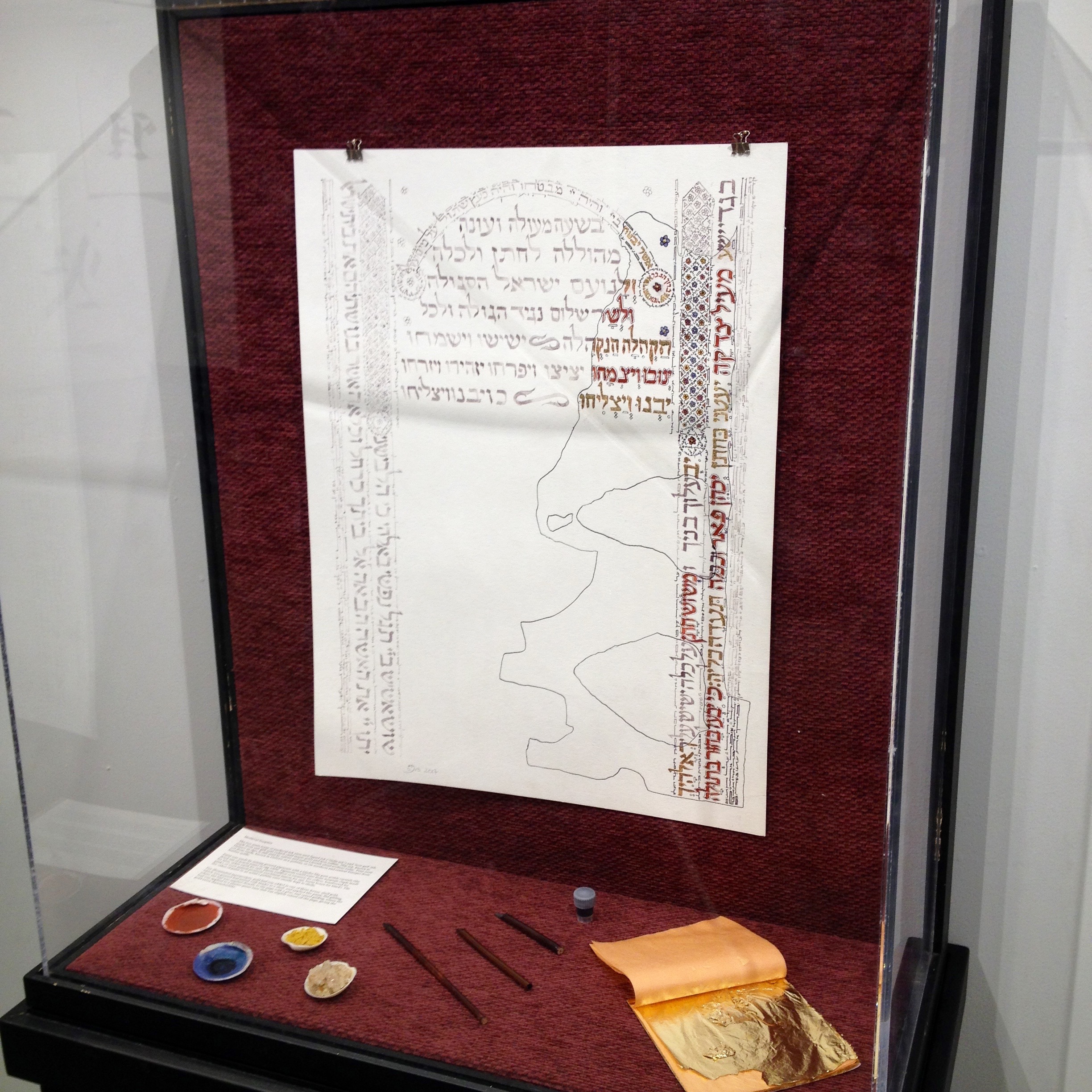
My postdoctoral fellowship at CMS and the Centre for Jewish Studies research focuses on Jewish books in the medieval and early modern worlds (especially in the Mediterranean): how they were made, how they travelled, and how so many of them ended up in Toronto. The Judaica of the Thomas Fisher Rare Book Library is one of the most significant collections of Jewish books in North America, and there are so many incredible stories waiting to be told.
My work will form one of nine research arms of U of T’s Old Books New Science lab’s Hidden Stories project, in line with their goal of rethinking the “local and global history of the book,” using books and their relationships to discover new networks and connections across the pre-modern world. I’m in very good company among the other scholars researching book history in Europe, South and East Asia, the Middle East, East Africa, and the Indigenous Americas, and I’m excited to discover the ways in which our findings will overlap and enrich each other.
The Fisher Library holds the final two folios of a manuscript of the Mishnah, a central compilation of late antique rabbinic law. Recently, a colleague was able to decipher the scribal colophon of the folio, showing that this manuscript dates to 841 CE, the oldest-known dated Jewish codex! It represents a transformative moment and a rare and precious glimpse of Jewish culture in the early Middle Ages. But to fully understand this book requires analysis of the Abbasid Empire, the codification of the Qur’an, and the interlinked textual, theological, and technological conversations taking place between Judaism, Christianity, and Islam. Scientific study of its parchment, ink, and binding remnants has the potential to reveal even more facets of history.
This is part of the wider approach to understanding books as social objects, at the nexus of physical processes and cultural meanings. Where did the materials come from? Which books did people choose to acquire, collect, and share? How were they understood? These kinds of questions can only be explored through collaboration across fields, disciplines, and institutions, making CMS the perfect home base for my fellowship.
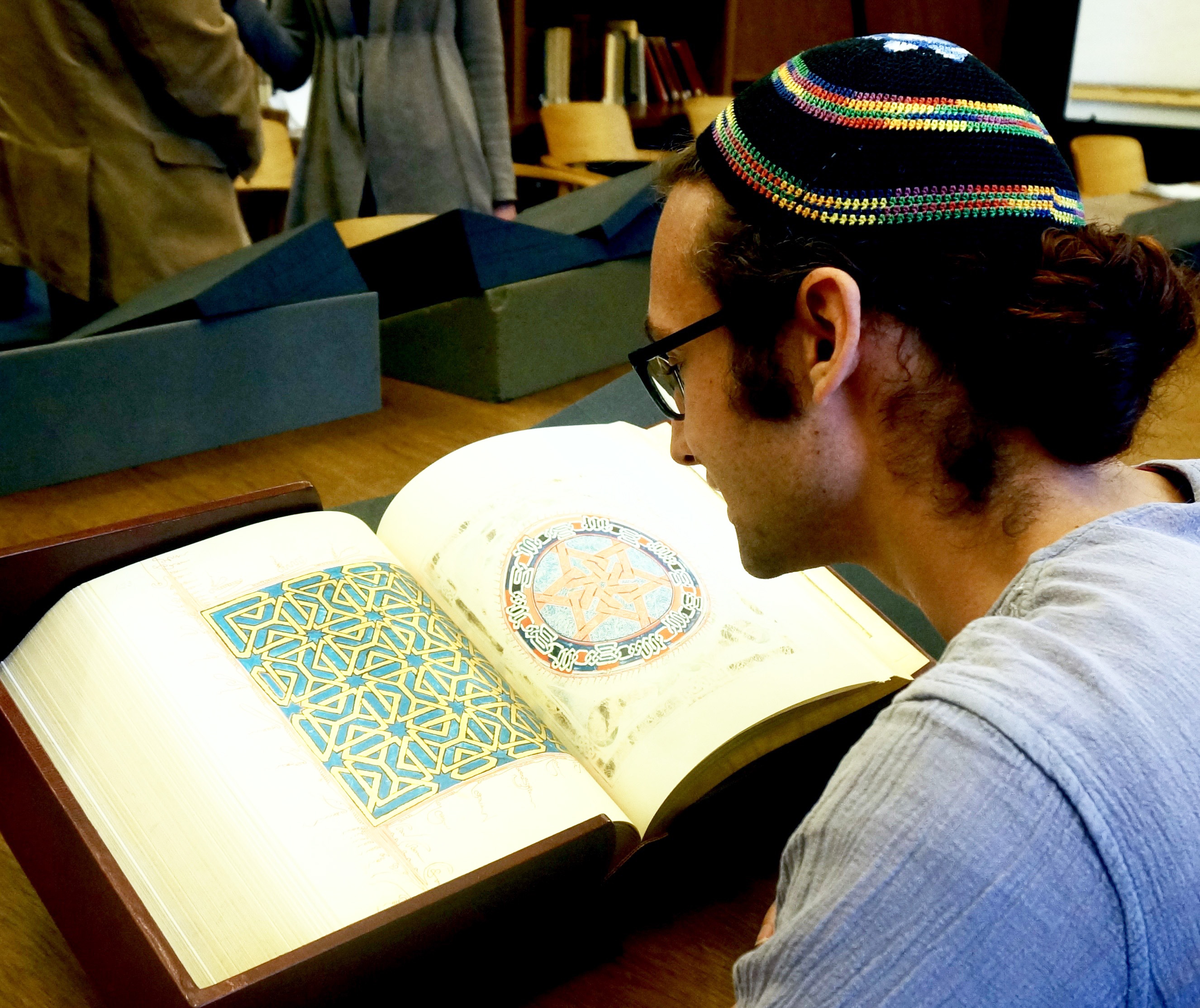
How does your hands-on experimental and artistic work translate to your study of books?
I started practising calligraphy long before I thought of studying books academically. With a father who is a Hebrew calligrapher, graphic designer, and typographer, I grew up around art supplies and inspirations. As I became more interested in the history of Jewish manuscript-making, I wondered if I could learn about these books by attempting to replicate what I was seeing, using the same materials and techniques. In the last few years, as my academic work became increasingly focused on the development of Hebrew printing, I likewise developed an artistic interest in Hebrew type and letterpress printing.
I’ve found that my academic research and artistic practices are mutually reinforcing. Generating fresh insights, it is also incredibly engaging for students! In our medieval book art course, my students try their hands at calligraphy, paint-making, paper-making, gilding, and book-binding using medieval materials and techniques to create their own illuminated manuscript page. We learned as much in creating these projects as we would have by writing traditional research essays, and had more fun too!
This methodology of preservation through use and study through practice is an aspect of book history in which U of T has long been a pioneer, through the Collaborative Program in Book History & Print Culture, and the Bibliography Room of Massey College, home to nine rare Hebrew fonts in the Balinson Hebrew Type Collection. I’m hoping that some of our research findings from the Hidden Stories project might become artistic creations!
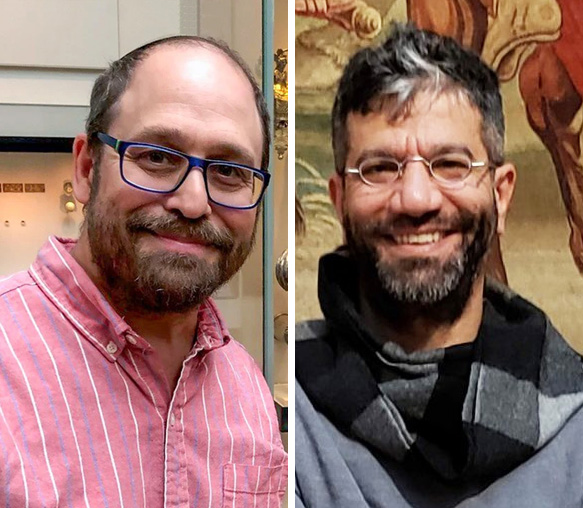
and Walid Saleh (r)
Dr. Sienna will bring a fresh perspective and wealth of experience to U of T during his fellowship at CMS and the Centre for Jewish Studies. We are especially excited to welcome Noam as his research focuses on an understudied subject in medieval studies and will complement so well the Old Books New Science project. In my own work on medieval Hebrew illuminated manuscripts, I have already benefit from Noam’s expertise, and I expect to learn much more from his research into the Islamic Mediterranean world. We are sure that everyone who encounters Noam will be energized by his infectious personality and his innovative work.
- Adam Cohen
Spotlight: Visiting Professor
“My Philosophy” with Pasquale Porro
Pasquale Porro (University of Turin) will join CMS and the Pontifical Institute of Mediaeval Studies this Fall as W. John Bennett Distinguished Visiting Scholar and will teach a course on Medieval Philosophy co-sponsored by the Department of Philosophy. Professor Porro tells us about his academic journey and his plans while in Toronto.
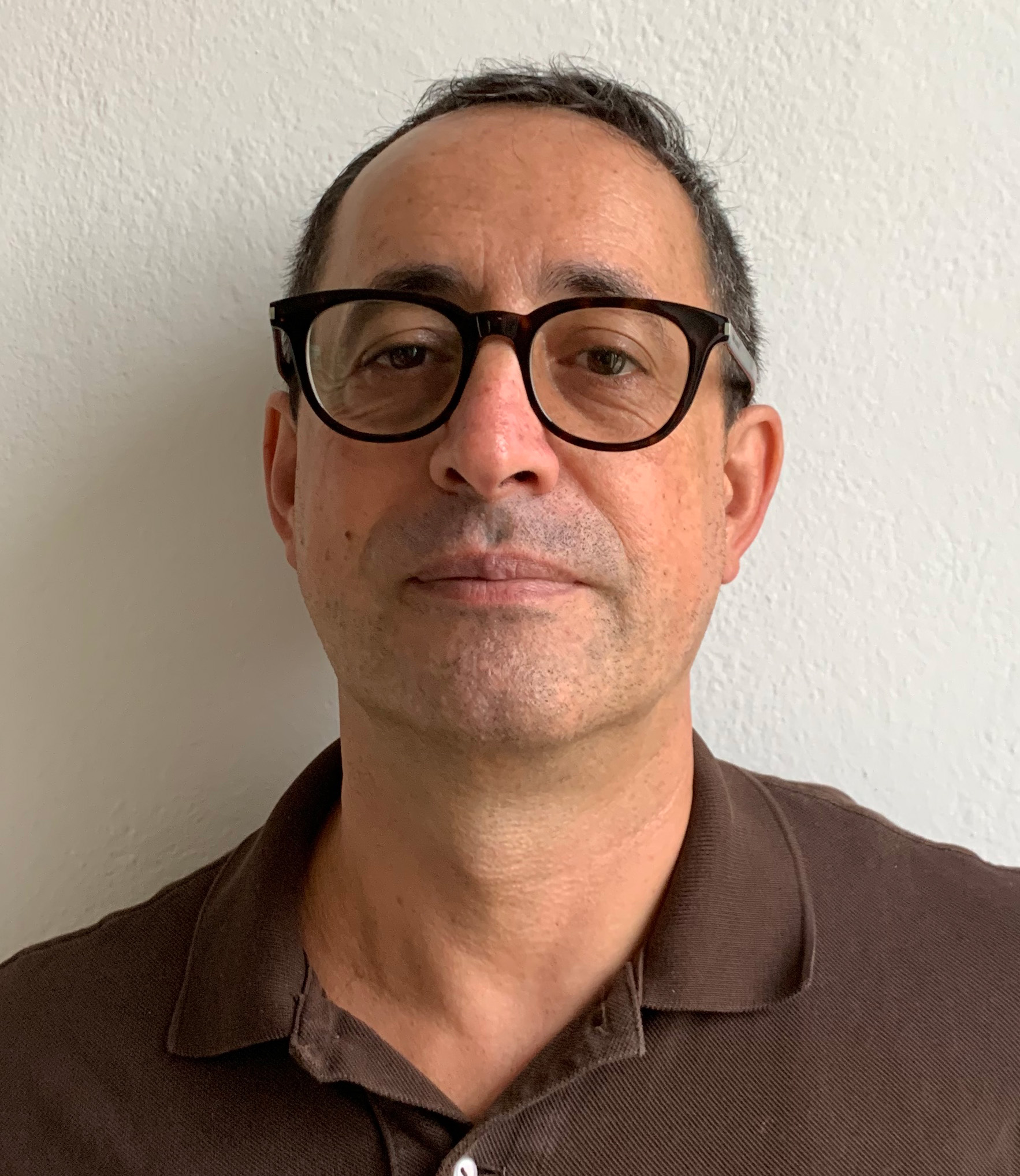
Can you please describe your academic journey and the evolution of your interest in medieval philosophy?
I began to study medieval philosophy (Henry of Ghent in particular) at the time of my dissertation in Bari under the guidance of Ada Lamacchia, a true magistra, capable of combining - in an exemplary manner - an impeccable scientific rigour with a sincere and profound passion for teaching. My choice to focus on medieval thought was initially rather accidental; I wanted to study something about which I knew very little, and which was generally regarded with some suspicion by the other students (and teachers). I think a reading seminar on Thomas Aquinas, given by a very nice and brilliant Polish visiting professor, Leszek Kuc, played a certain role; we read Aquinas’s Disputed Questions on the Soul in Latin around a table at the centre of which towered a bottle of excellent vodka, which we could (in moderation) resort to when we got stuck in the most difficult passages. This - I confess - impressed me, although I imagine that under current academic codes, it would be considered an inappropriate practice.
I next entered the PhD program at Rome’s La Sapienza University under the supervision of another outstanding figure, Alfonso Maierù. During my doctorate, I spent two years in Leuven, an ideal city for the study of medieval philosophy, and was then fortunate enough to return to Bari to begin my academic career. Over those 10 years, moving from a tenured lecturer to Full Professor, I continued to spend periods of research and teaching abroad, and was eventually appointed Professor of History of Medieval Philosophy at the University of Paris Sorbonne. This was truly a dream come true, as the Sorbonne is undoubtedly one of the most prestigious chairs in this field of study.
I have since returned permanently to Italy (with which I had never really severed ties), more specifically to Turin, to be closer to my family. Looking back, I have to say that I have been very lucky, in terms of the teachers I have met and the opportunities I have had. In any academic career, there are always windows of opportunity and life events that play an inevitable role - over and above commitment and passion.
You will spend a term in Toronto focused on research as well as teaching a graduate seminar. What is your approach to these facets of academics?
I feel privileged to be doing a job that I really enjoy in its two fundamental aspects: I like teaching and I like research, though I am less passionate about proofreading and examining. I find it more interesting and engaging to examine students through interviews, talking to them with an eye to the philosophical issues at stake in various topics. I also think it is difficult to separate teaching from research; you can only try to get others excited about what you are teaching if you are personally passionate about that particular subject at that moment. My experience (but I think it is a very common one) is that by explaining a text several times, one understands it better and better, and that by teaching, one discovers through students’ questions aspects or details that had previously escaped. Over the years I have repeatedly taught courses on Dante’s Banquet or on texts by Aquinas and Duns Scotus, and each time I have discovered something new.
What important questions are you raising in your current research?
My current research projects concern the ethics of belief in the Middle Ages, and the medieval origins of the opposition between epistemic evidentialism and doxastic voluntarism. I believe that these two attitudes can be found as early as the 13th and 14th centuries, prior to the late 19th-century debate between Clifford and James. After all, why do we believe what we believe? And why do we believe in the absence of rational or empirical evidence? The way in which medieval masters sought to define what underlies our beliefs - religious belief in particular - by discussing the respective roles of will and of intellect, is extremely sophisticated and worthy of attention.
But there is another equally interesting question: How can we be led to believe that the “official” truth proposed to us may be the result of a plot or conspiracy aimed to conceal what is “really” true? It is a mechanism that also underlies medieval discussions about the boundaries between orthodoxy and heresy. I think that a “contrastive” study of these debates can offer a different perspective from which to frame some strictly contemporary phenomena, such as the spread of fake news or conspiracy theories. Of course, I also continue to work on some of my favourite medieval authors: Thomas Aquinas, Henry of Ghent, Duns Scotus, Dante Alighieri, and in particular, how the tradition of Thomism was historically constituted.
What can we anticipate from your visit and from your course, Themes in Medieval Philosophy?
This opportunity to take advantage of the Bennett Professorship is extremely precious to me. Toronto, because of both CMS and PIMS, is undoubtedly an extremely lively and stimulating place for the study of medieval philosophy, and this period comes for me at a time when I need to question myself again after my experience at Paris Sorbonne, and my not-so-quiet move to Turin. I am very grateful to the Director of CMS, Elisa Brilli, the Praeses of the Pontifical Institute of Mediaeval Studies, V. Rev. Fr. Augustine Thompson, O.P., and to my colleague and friend, Chair and Graduate Chair of the Department of Philosophy, Martin Pickavé.
In the Themes in Medieval Philosophy course, I have decided to propose the rather unusual theme of “time travel” in the Middle Ages: Back to the Future. Time, Being and Duration in Late-Antique and Medieval Thought. The idea is to question the asymmetry between past and future that arises since Aristotle; the past is necessary and unchangeable, and the future is indeterminate, open to choice and deliberation. Indeed, Aristotle writes in the Nicomachean Ethics: “Nothing that is past is an object of choice, e.g. no one chooses to have sacked Troy; for no one deliberates about the past, but about what is future and contingent, while what is past is not capable of not having taken place; hence Agathon is right in saying: ‘For this alone is lacking even to God, To make undone what has once been done.’” The spirit and purpose of the course are well expressed by Samuel Butler in Erewhon Revisited (ch. 14): “It has been said that though God cannot change the past, historians can; it is perhaps because they can be useful to Him in this respect that He tolerates their existence.”
W. John Bennett Distinguished Visiting Scholars
In order to support the teaching and research in medieval studies at the University of Toronto, the Centre for Medieval Studies (CMS) and the Pontifical Institute of Mediaeval Studies (PIMS) established in 2010 a special visitorship for distinguished scholars in medieval studies. Pasquale Porro will deliver this year’s Bennett Lecture on Friday, December 8 to close out the first semester of the CMS Convivium series. Join us from 4-6 pm in Room 400, Muzzo Family Alumni Hall, 121 St. Joseph Street in Toronto.
Prof. Porro will also present at the 2023 Toronto Colloquium in Medieval Philosophy, a two-day conference comprising talks and workshops in ancient and medieval philosophy. Friday, September 22 at 4 pm to Saturday, September 23 at 7 pm, the conference will take place in Room 100 of the Jackman Humanities Building, 170 St. George Street in Toronto.
CMS Convivium
The CMS Convivium fosters scholarly exchanges within CMS and associated bodies by offering a space to learn about in-progress research of faculty, alumni, and visiting scholars, and provides an arena for advanced PhD students to present their research topics.
| September 21-23 |
Co-Sponsored Event CRRS Conference: Worlds of Conflict: Violence in the Early Modern Period |
University of St. Michael's College & Emmanuel College |
|
September 22, 4:00 pm - September 23, 7:00 pm |
Toronto Colloquium in Medieval Philosophy | Room 100, Jackman Humanities Building, 170 St. George St. |
|
September 29, 2:30-4:30 pm Lunch, 1:00 pm |
The Old Books, New Science Lab presents: Voicing Hidden Stories: New Approaches to the Local and Global History of the Book with Suzanne Akbari (IAS, Princeton), Rachel Di Cresce (U of T), Alexandra Gillespie (U of T), Jessica Lockhart (U of T), Sian Meikle (U of T Libraries) and Melissa Moreton (IAS, Princeton) | Lillian Massey Building, 3rd Floor, 125 Queen’s Park |
|
October 13, 2:30-4:30 pm Lunch, 1:00 pm |
Gregory Carrier (CMS PhD Candidate): Chronicling Disability in the Life of Herman of Reichenau (1013-1054) Mark Gibbard (CMS PhD Candidate): Trends in Early Medieval Mythography |
Lillian Massey Building, 3rd Floor, 125 Queen’s Park |
| October 13-14 |
Co-Sponsored Event The 10th Annual Wollesen Memorial Graduate Symposium: Contretemps |
U of T |
|
October 27, 2:30-4:30 pm Lunch, 1:00 pm |
The Dictionary of Old English and Practices of Commentary Research Group present: Claudio Cataldi (Università Kore di Enna): The Glossaries in Oxford, Bodleian Library, MS Bodley 730 | Lillian Massey Building, 3rd Floor, 125 Queen’s Park |
|
November 9, 3:00 pm - November 11, 7:00 pm |
Köln-Toronto Colloquium Students from CMS, a.r.t.e.s. Graduate School, and the Zentrum für Mittelalterstudien (ZEMAK) of the Universität zu Köln and commenting professors | Lillian Massey Building, 3rd Floor, 125 Queen’s Park |
|
November 17, 24, December 1, 2:30-4: 30 pm / Lunch, 1:00 pm |
Research Talks (TBA): Professor of Medieval Latin Studies and Culture | Lillian Massey Building, 3rd Floor, 125 Queen’s Park |
| December 8, 4:00-6:00 pm | W. John Bennett Distinguished Visiting Scholar Lecture: Pasquale Porro (University of Turin): Do we really have a natural desire to know God? Philosophy, Theology and Faith, 1270-1320 | Room 400, Muzzo Family Alumni Hall, 121 St. Joseph St. |
9th Cologne - Toronto Graduate Colloquium
The Cologne-Toronto Graduate Student Colloquium - jointly sponsored by the a.r.t.e.s. Graduate School, the Research Training Group “Dynamics of Conventionality (400-1550)” and the Zentrum für Mittelalterstudien (ZEMAK) of the Universität zu Köln, and the Centre for Medieval Studies of the University of Toronto - will take place at CMS November 9-11.
Programme
NOVEMBER 9
3:00 pm Welcome & Opening Remarks
3:30 - 4:45 pm Session 1
Speaker: Benedikt Lemke, The Early Transmission of Ordeal Liturgies in the Carolingian Era
Chair: Karl Ubl / Commentator: Jesse Billet
5:00 - 6:15 pm Session 2
Speaker: Braden Sides, Identifying Manuscripts for Use by Local Priests in the Carolingian Archbishopric of Mainz
Chair: Jim Ginther / Commentator: Karl Ubl
NOVEMBER 10
8:45-10:00 am Session 3
Speaker: Tina Druckenmüller, Keeper of Anselm’s Legacy or Opposing Disciple? Is Gilbert Crispin’s Treatise De anima the Work Anselm Could No Longer Write?
Chair: Andreas Speer / Commentator: Peter King
10:15-11:30 am Session 4
Speaker: Diego Espinoza, Ockham on Theology and Acts of Believing
Chair: Martin Pickavé / Commentator: Andreas Speer
11:45 am-1:00 pm Session 5
Speaker: Giovanni Lasorella, A Thomist Theologian in Cologne: John Picard of Lichtenberg and his Quaestiones Disputatae
Chair: John Magee / Commentator: Martin Pickavé
1:00-2:30 pm Lunch
2:30-3:15 pm Session 6
Speaker: Theresa Neuhoff, On the Representation of Porphyry in 14th-century Panel Painting in Cologne
Chair: Christiane Ackermann / Commentator: Jill Caskey
NOVEMBER 11
8:45-10:00 am Session 7
Speaker: Álex Bermúdez-Manjarrés, Pleasure in Fiction, Pleasure of Fiction: the Potiphar’s Wife Motif in John of Alta Silva’s Dolopathos (ca. 1184-1212)
Chair: Elisa Brilli / Commentator: Peter Orth
10:15-11:30 am Session 8
Speaker: Annette Kaldorf, Epic Conventions in William the Breton’s Philippis
Chair: Peter Orth / Commentator: Cillian O’Hogan
11:45 am-1:00 pm Session 9
Speaker: Florian Mueller, Closed Doors and Dwarven Secrets: Laurin’s Mountain Kingdom
Chair: Irina Dumitrescu / Commentator: Christiane Ackermann
1:00-2:00 pm Lunch
2:00-3:15 pm Session 10
Speaker: Morgan Elizabeth Moore, Dialogue in Owein and Ywain and Gawain
Chair: Kara Gaston / Commentator: Irina Dumitrescu
3.30-5:15 pm Session 11
Speaker: Esther von Stosch, Transcultural Conventions of Material Hybridity in Persian and Middle High German Narratives on Alexander the Great
Chair: Monika Schausten / Commentator: Markus Stock
5:30-6:45 pm Session 12
Speaker: Somaia Mostafa, Die Figur des Priesters Johannes und die Orientalismus-Frage
Chair: Markus Stock / Commentator: Monika Schausten
6:45 pm Concluding Words
Conveners: Prof. Elisa Brilli, CMS / Italian, University of Toronto, Director & Prof. Andreas Speer, Thomas-Institute, University of Cologne, Director.
November 9, 3 pm - November 11, 7 pm at the University of Toronto, Centre for Medieval Studies, Lillian Massey Building, 125 Queen’s Park, 3rd Floor, Room 312 (Great Hall)
Past Events
|
|
|
|
| At the 2023 CMS Alumni Lecture, moderator and CMS Professor Emeritus Brian Stock (R) poses with his former student, Hebrew University of Jerusalem’s Gur Zak following Zak’s presentation, “Humanist Compassions: A Literary History of An Emotion”. | Scott Bruce (L) of Fordham University and PIMS Fellow and Library Director Greti Dinkova-Bruun celebrate his lecture, “Origen Issues: The Reception of a Renegade Greek Theologian in Early Medieval Europe” at the 2023 O’Donnell Lecture. |
Publications
Congratulations CMS Faculty and Alumni
| Edited by Amanda Goodman and Suzanne Conklin Akbari Practices of Commentary: Medieval Traditions and Transmissions ARC Humanities Press |
Edited by Lucy C. Barnhouse and Winston Black Beyond Cadfael: Medieval Medicine and Medical Medievalism Trivent Publishing |
Elisa Brilli and Giuliano Milani Dante’s New Lives: Biography and Autobiography English translations by Mary Maschio and Eva Plesnik Reaktion Books |
| Jason Aaron Brown St. Antoninus of Florence on Trade, Merchants, and Workers University of Toronto Press |
Edited by Caroline M. Barron and Martha Carlin Medieval Travel. Essays from the 2021 Harlaxton Symposium Shaun Tyas Publications |
Danièle Cybulskie Chivalry and Courtesy: Medieval Manners for Modern Life Abbeville Press |
| Edited by Kelly DeVries, Clifford J. Rogers, and John France Journal of Medieval Military History: Volume XXI Boydell & Brewer |
Translated and Annotated by Samuel J. Klumpenhouwer Biblia cum Glossa Ordinaria - Genesis, The Great Medieval Commentary on Sacred Scripture Emmaus Academic |
Margaret McGlynn The King’s Felons: Church, State and Criminal Confinement in Early Tudor England Oxford University Press |
| Edited by Sarah Powrie and Gur Zak Textual Selves: Essays in Dialogue with Brian Stock Brepols Publishing featuring essays by Catherine Conybeare, Natalie Zemon Davis, Aviad Kleinburg, John Magee, Sarah Powrie, and Gur Zak |
Edited by Pietro Delcorno and Bert Roest Observant Reforms and Cultural Production in Europe Nijmegen: Radboud University Press |
Edited by Markus Stock Konrad von Würzburg De Gruyter featuring essays by Walker Horsfall, Christopher Liebtag Miller, Anne Marie Rasmussen, and Markus Stock |
To submit your publication for promotion, please email medieval.communications@utoronto.ca. To share a desk copy with CMS for display please send to Communications, Centre for Medieval Studies, 305-125 Queen’s Park, Toronto, ON, M5S 2C7.
Acclamations
Faculty News
Alexandra Bolintineanu was awarded a 2022-2023 University of Toronto Early Career Teaching Award.
James Carley and Ann Hutchison were granted honorary Doctor of Sacred Letters degrees from the University of St. Michael’s College.
Laura Ingallinella, along with co-PIs Carrie Beneš, Amanda Madden, and Laura Morreale, was awarded a National Endowment for the Humanities’ Scholarly Editions and Translations program grant to facilitate the collaboration of their La Sfera Project.
Cillian O’Hogan was awarded a SSHRC Insight Grant to fund his project, The Transmission and Reception of Prudentius in the Latin Middle Ages.
Student News
Justin Arnwine successfully defended their dissertation titled, “Re-reading the Jacob of the ‘Jacobites’: Heresiology and the Reception of Jacob of Serugh and Jacob Baradaeus”
Alessia Berardi successfully defended their dissertation titled, “Vita, scientia, doctrina: Stephen Langton and the biblical model of the “good master” in the twelfth-century schools”.
John Jalsevac recently accepted a position as headmaster at Our Lady of the Wayside Catholic School. John has also won a 2023 Canadian Philosophical Associate Congress Graduate Merit Award, and the American Catholic Philosophical Quarterly’s Rising Scholar Award.
Laura Moncion was awarded a 2022-2023 Historical Studies Teaching Award.
Bard Swallow was awarded a Schallek Award for “The Role of Latin Poetry in Late Medieval England.”
Alumni News
Oleg V. Bychkov (PhD 1999) and team were awarded a National Endowment for the Humanities grant to support Native American and Indigenous Studies.
Samuel Cardwell (PhD 2023) was awarded the Governor General’s Gold Medal and accepted a Teaching Associate position at the University of Nottingham.
Martha Carlin (PhD 1983) was named Distinguished Professor at the University of Wisconsin-Milwaukee.
Kelly DeVries (PhD 1987) was appointed as Distinguished Visiting Professor of Military History at the United States Air Force Academy for 2023-2024.
Peter Hartman (PhD 2011) received a National Endowment for the Humanities grant for the project Medieval Theories of Consciousness.
Stephanie Lahey (Postdoctoral Fellow 2021-2023) was elected Cambridge University Library’s Oschinsky Research Associate and a Fellow of Girton College.
Matthew Roby (Postdoctoral Fellow 2021-2023) accepted a tenure-track position as Assistant Professor of English and Global Medieval Literatures at Mount Saint Vincent University.
Kirsten Schut (PhD 2019) accepted a teaching fellowship at King’s College.
Andrea Schutz (PhD 1995) was named Professor for Excellence in Teaching at St. Thomas University.
Talia Zajac (PhD 2017) accepted an Assistant Professor position at Niagara University.
Benjamin Wheaton (PhD 2018) accepted the position of Visiting Assistant Professor at Houghton University.
Alumni Focus
In Memoriam
Sister Mary Forman served at the College of Saint Benedict / St. John’s University and St. John’s Seminary for many years after earning her MA (1988), and her PhD (1995) at CMS. While there, she taught, conducted research, and filled several administrative positions, approaching all her roles with a deep sense of service to others. Mary lived to open the beauty of life in communion with God through prayer and kindness.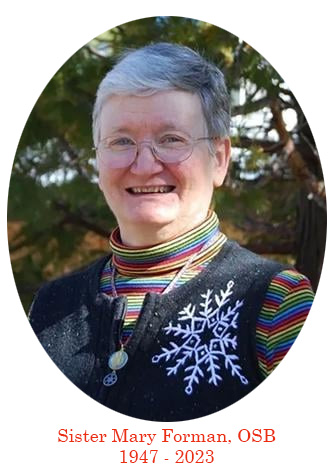
As a young woman, she helped start a low-income medical clinic pharmacy in Nampa, ID, while later in life she was a member of national and international committees for religious life and held several leadership positions. She offered spiritual direction, educated countless people - religious and non-religious alike, and led contemplative discernment retreats for undergraduates at Valparaiso University. Working closely with Steve to design these retreats, it was during one of their planning trips that she graciously became godmother to our son. Her Benedictine hospitality shone through Christmas gifts each year that reflected how she prayerfully knew us and cared for us, and she had numerous godchildren who were similarly prayed for and loved.
Mary often seemed surprised that people would seek her wisdom and expertise. She embodied a profound humility that was shaped by her life as a Benedictine, though she had many achievements in the academic world. Encouraged by her retreatants, Mary published Praying with the Desert Mothers, a book with its origins in her ministry of educating and praying with others. She was president of the American Benedictine Academy and helped to edit scholarly journals focused on monastic history and theology. She edited One Heart, One Soul, Many Communities, a collection of essays that drew from the heritage of her tradition to point to its future.
After completing her term as Chair of Theology, she cherished her sabbatical to dwell with Jerome, Marcella, Paula, and Eustochium through translating several scriptural interpretations. She became prioress, another act of service that came with challenges different from chairing an academic department. She was always grateful and dependent upon the prayers of her community and beyond, because of the grace-filled and disconcerting expectations of anyone in that position, not least her own. Amid all that work - and it was a lot of work - Mary was sought as a spiritual director and a wise counsellor.
By Alumni Steve Driver and Lisa D. Maugans Driver, Chair / Professor, Department of Philosophy and Theology, Valparaiso University
MST 1003
The MST 1003 Professional Development for Medieval Studies PhDs course provides CMS students with an overview of the non-scholarly skills required to obtain to assist them with the academic job search and their professional lives.
Presentations are offered from a range of faculty and guest speakers, including CMS Alumni who extend guidance and engage in discussions, focusing on the unusual challenges faced by the interdisciplinary nature of Medieval Studies scholars.
We wish to extend our sincere thanks to Professor Sebastian Sobecki for coordinating this course, and the following Alumni who will share their journeys with our students in 2023-2024:
Lisa Chen Obrist (PhD 2015)
National Research Council of Canada
Andrew Dunning (PhD 2016)
Hunt Curator of Medieval Manuscripts, University of Oxford
Joanne Findon (PhD 1994)
Trent University
Jessica Lockhart (PhD 2017)
University of Toronto Mississauga
Margaret McGlynn (PhD 2015)
Western University
Tristan Major (PhD 2010)
PIMS Library
Jonathan Newman (PhD 2008)
Missouri State University
Miles Pattenden (MA 2005)
Australian Catholic University
Bogdan Smarandache (PhD 2019)
Centre national de la recherche scientifique / Sorbonne
Anna Wilson (PhD 2015)
Harvard University
This initiative is supported by FAS Milestones and Pathways Program.
Alumni also have the option to participate in the Alumni Mentorship Programme as Ambassadors providing individual mentorship to advanced PhD students, helping them navigate the transition from doctoral research to advancing their careers. We thank all those who gave their availability in 2023-24 and continue to welcome submissions at uoft.me/9AX.
Next year’s call for the full Alumni Programme will appear during the spring of 2024.
For additional info, visit medieval.utoronto.ca/alumni-friends.
CMS Committees
Executive
|
|
|
|
| Elisa Brilli Director director.medieval@utoronto.ca |
Jim Ginther Associate Director associatedirector.medieval@utoronto.ca |
Kara Gaston PhD Coordinator phdcoordinator.medieval@utoronto.ca |
| As a previous PhD Coordinator at CMS, I bring a passionate commitment to excellence in graduate education and the well-being of our students to my role as Director. A warm welcome to each of you; I look forward to another outstanding year of scholarly exchanges within our community. | As Associate Director, I share in the responsibility for the practical daily management of the Centre, its academic program, and personnel, as well as serve on the Admissions & Fellowship, Latin, Placement, Planning, and Workload Committees. |
As PhD Coordinator, I am looking forward to meeting students and learning about projects beyond my own area of study. I hope to help with problem-solving and provide support for students. Please don’t hesitate to get in touch! |
Administration
|
|
|
|
|
| Fareena Mughal Manager manager.medieval@utoronto.ca |
Terry Louisy Graduate Administrator gradadm.medieval@utoronto.ca |
Simon Swain Graduate Assistant gradadassist.medieval@utoronto.ca |
Cora Endean Communications medieval.communications@utoronto.ca |
|
As CMS Manager, I undertake a multifaceted role to advance the academic and research missions of the Centre while ensuring the success of Faculty, Students, and Staff. This encompasses a broad spectrum of responsibilities, covering financial, operational, and HR support. |
I have many years of experience in administration at U of T, an MA in Education, and a love of history and literature. I am pleased to be the new Graduate Administrator at the Centre for Medieval Studies. |
As CMS Graduate Assistant, I work to ensure that student records are up to date, and I provide information to students and applicants. I arrange the Final Oral Examinations for our PhD students, and I’ve previously worked in various departments across U of T’s St. George Campus. |
As Communications Officer, I hope to help connect, inform, celebrate, and learn more about CMS students, faculty, alumni, and associated medievalist communities. Please share your all accomplishments, no matter the scale!
|
Student Executive Committee
|
|
|
|
| Jack McCart Chair |
Claire Davis |
Agnès Boutreux Secretary |
| I am a third-year PhD student researching commerce, testamentary practice, and material culture, primarily in England, c. 1200–1400. I quite enjoy the Centre’s interdisciplinarity and the exchange of resources, recommendations, and obscure bits of information - to say nothing of baked goods - that takes place here. I look forward to meeting the incoming cohort and welcoming them into our ranks. | I am a second-year PhD student at the Centre, coming from the United States with a master’s in English literature. My current research interests involve the text / textual metaphor of Old English poetics and monstrosity within Old English narratives. In my tenure as Treasurer, I look forward to helping committees serve students by funding their events and great ideas. | I am a third-year PhD student at the Centre for Medieval Studies, and I work on troubadour poetry (old Occitan literature). I joined the student executive committee for the 2023-24 year to take action in favour of students. As a Secretary, my role will be to record minutes and motions and to maintain the SEC documents. I am also especially involved in social and environmental matters. |
Contributors: Alexandra Bolintineanu, Agnès Boutreux, Elisa Brilli, Adam Cohen, Claire Davis, Lisa D. Maugans Driver, Steve Driver, Kara Gaston, Jim Ginther, C.E.M. Henderson, Jessica Lockhart, Terry Louisy, Jack McCart, Maria Maschio, Morgan Moore, Fareena Mughal, Pasquale Porro, Walid Saleh, Noam Sienna, Simon Swain
Editorial: Cora Endean



